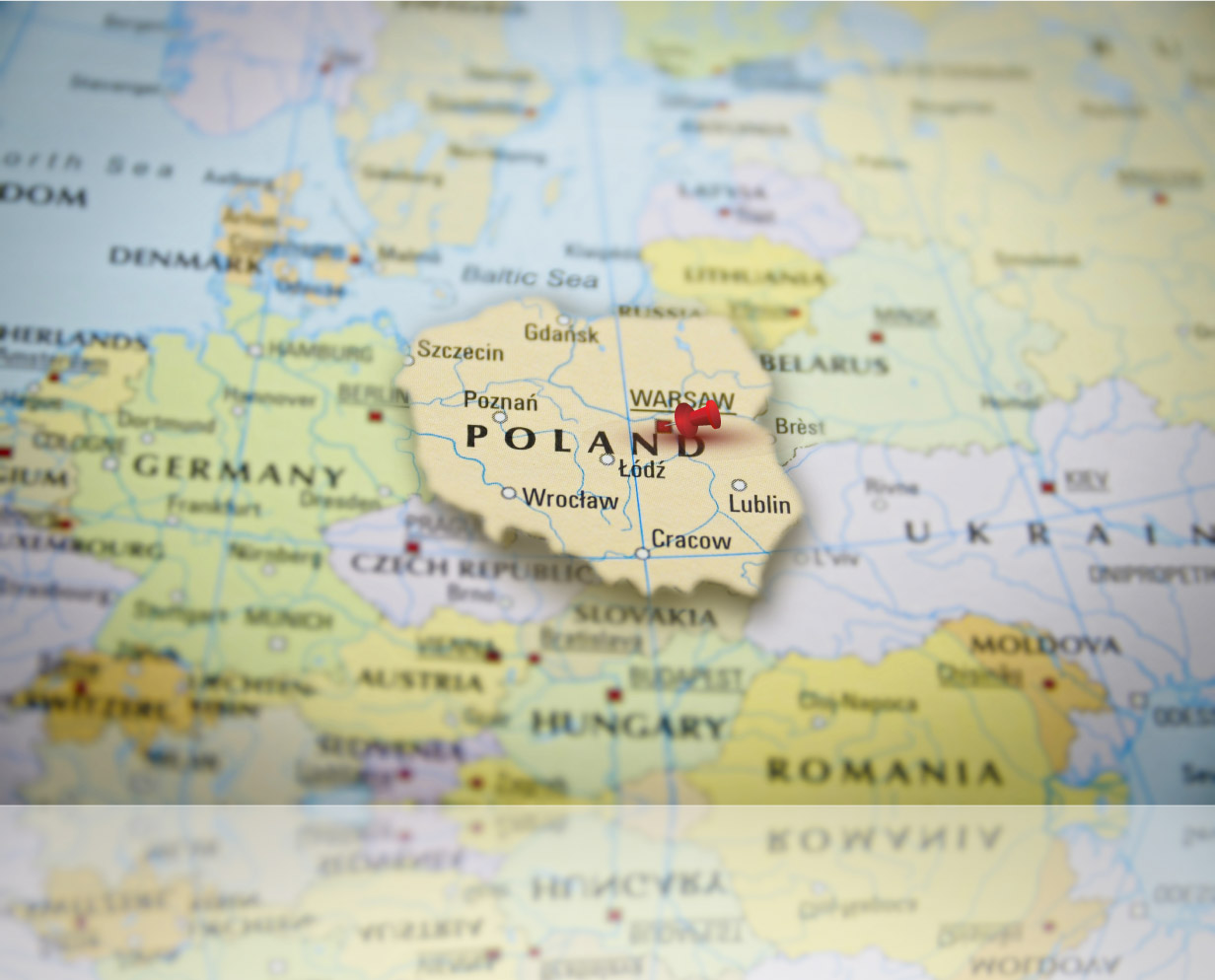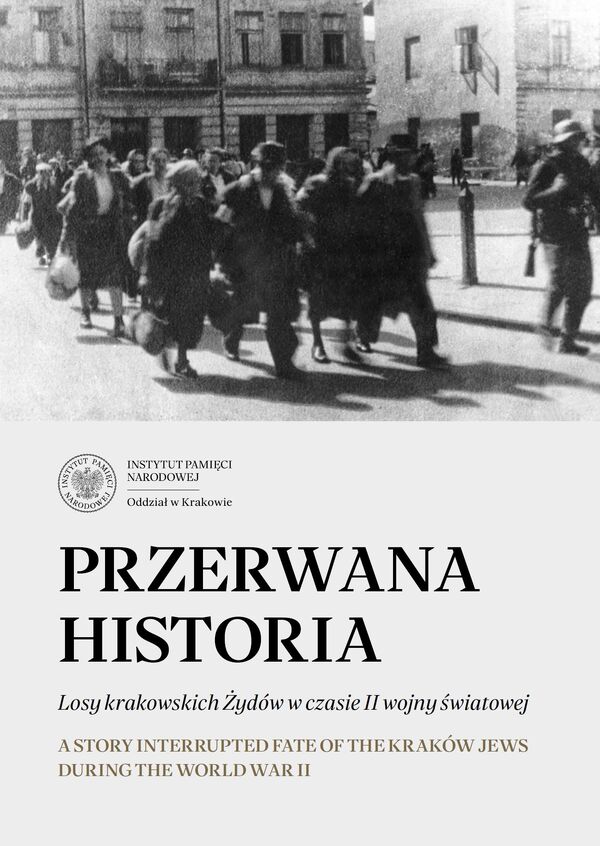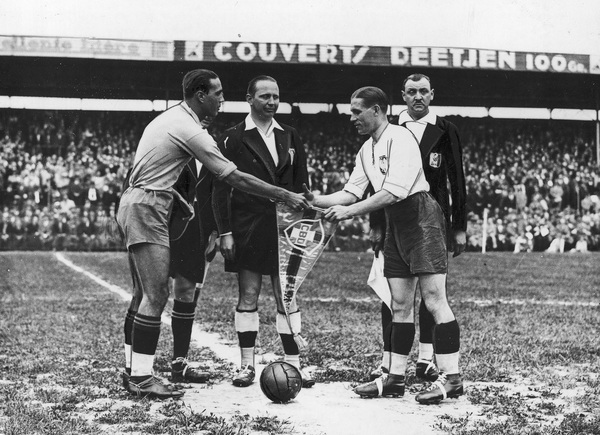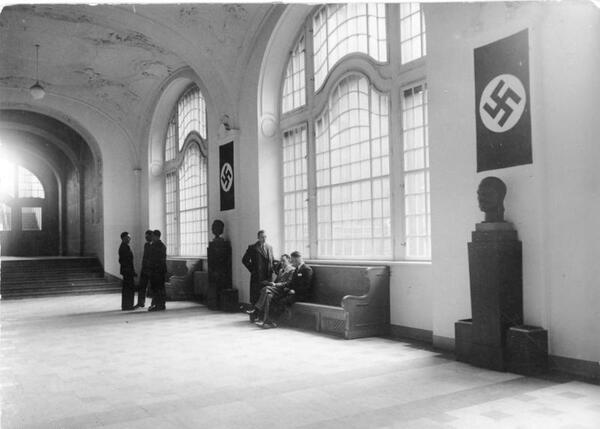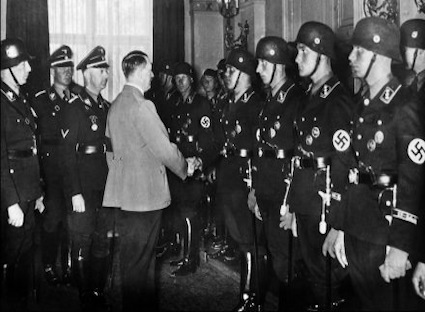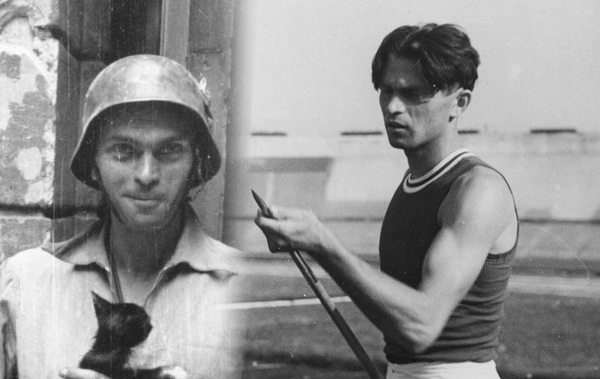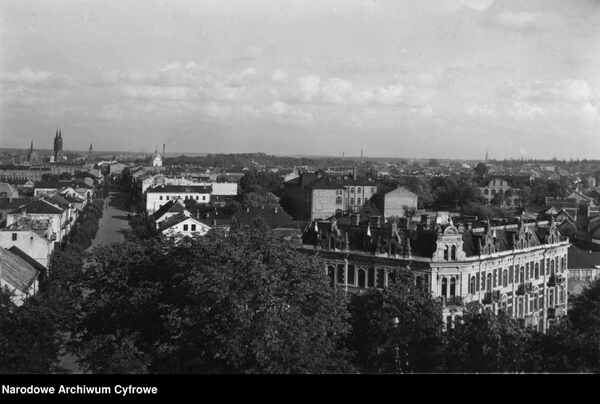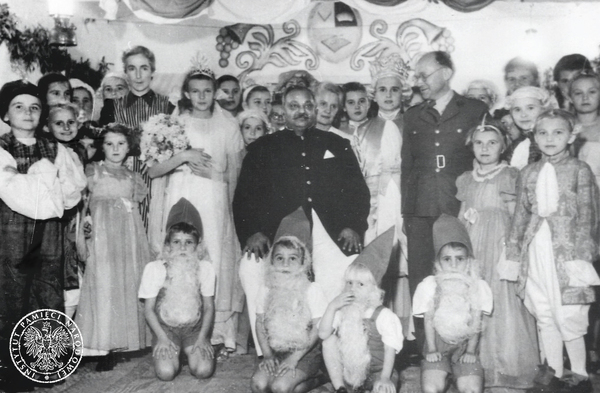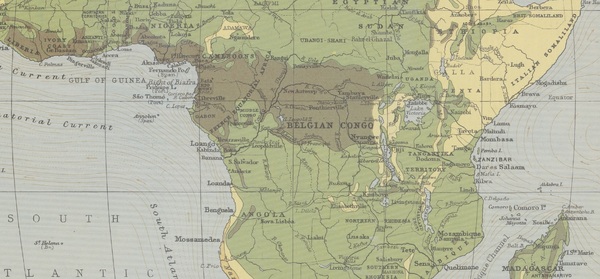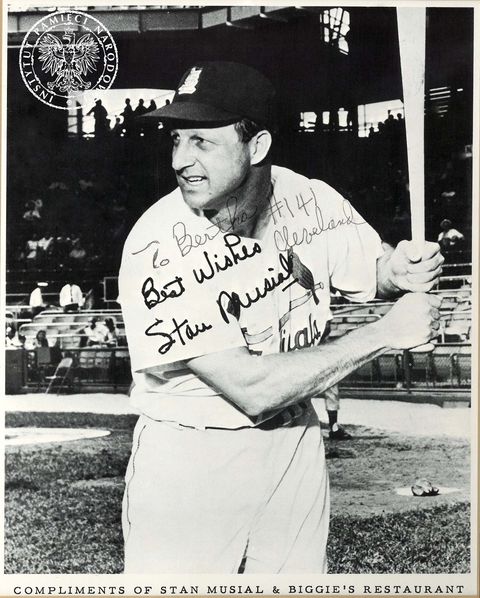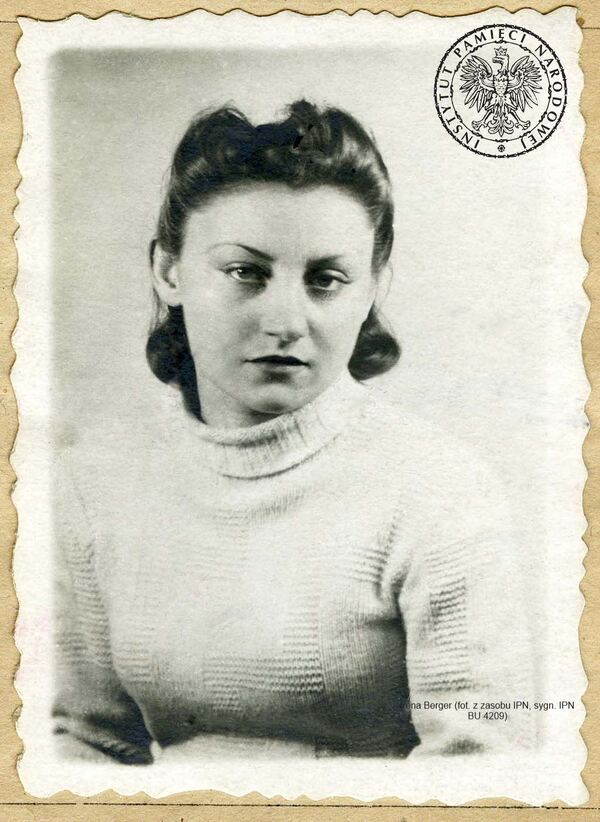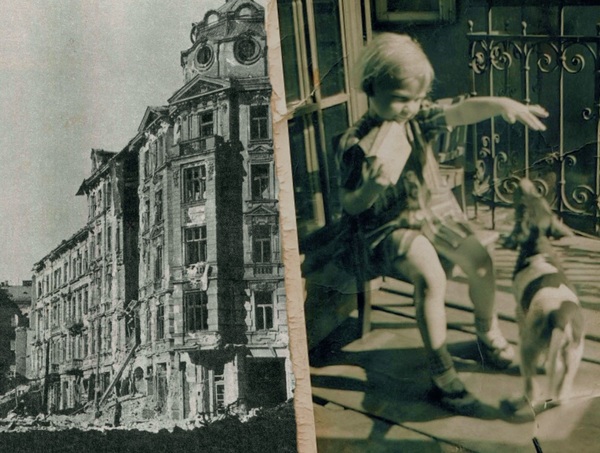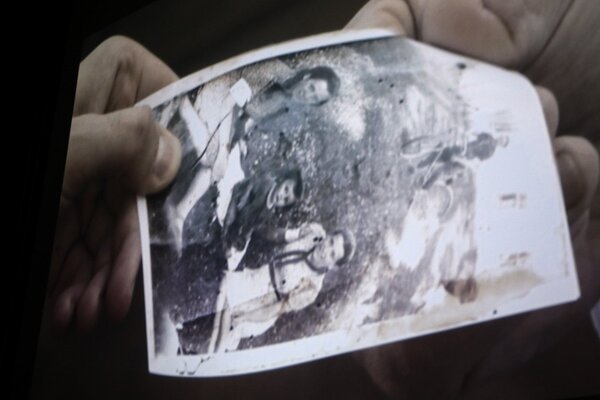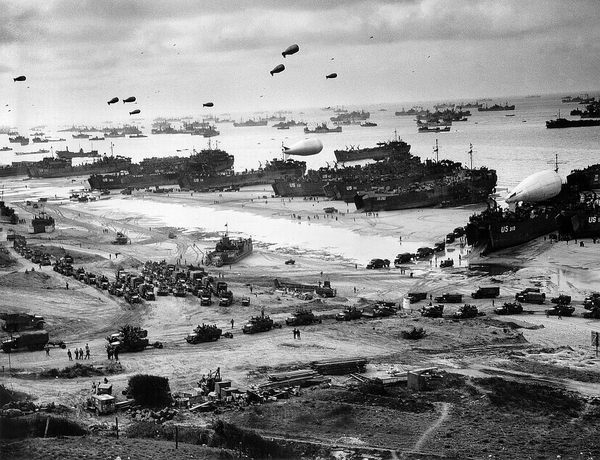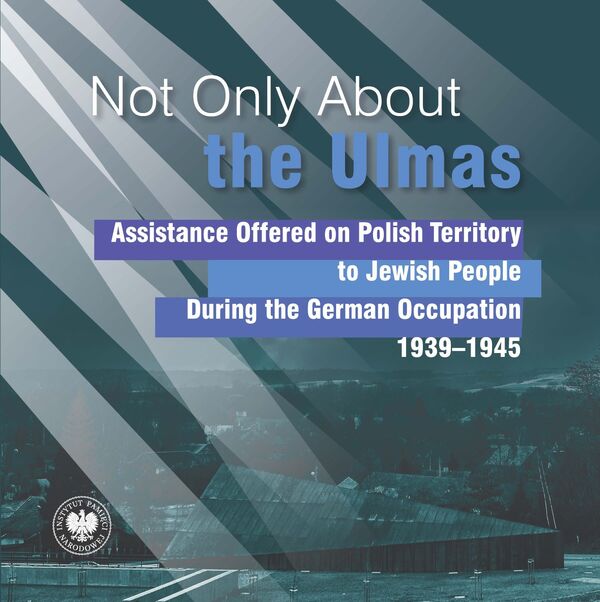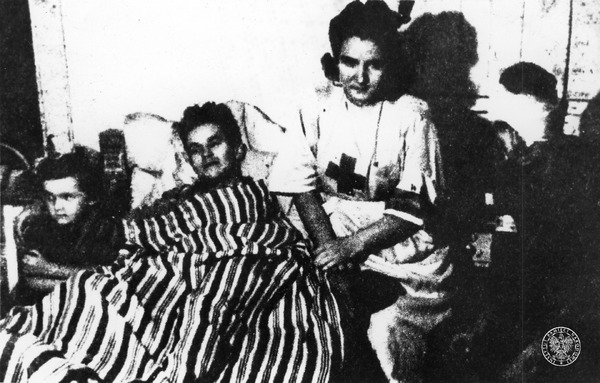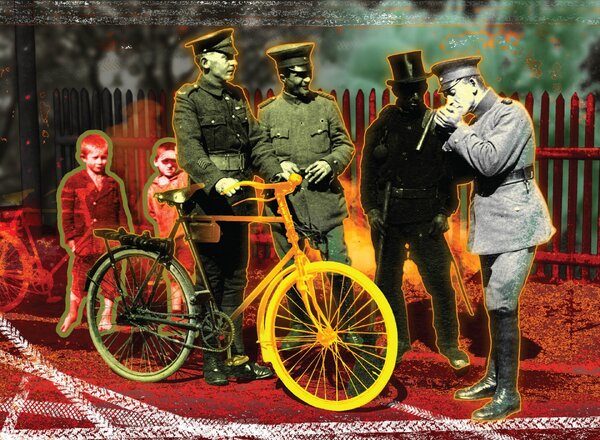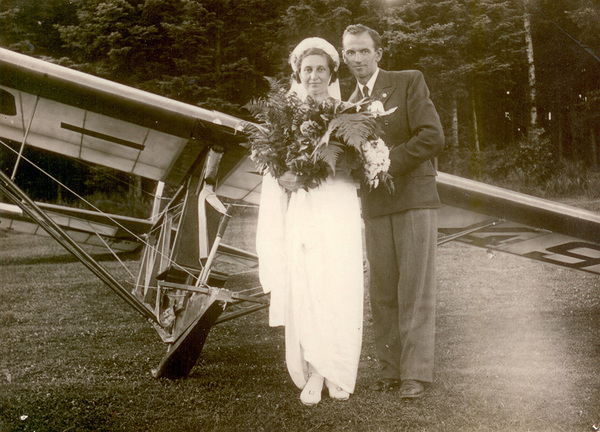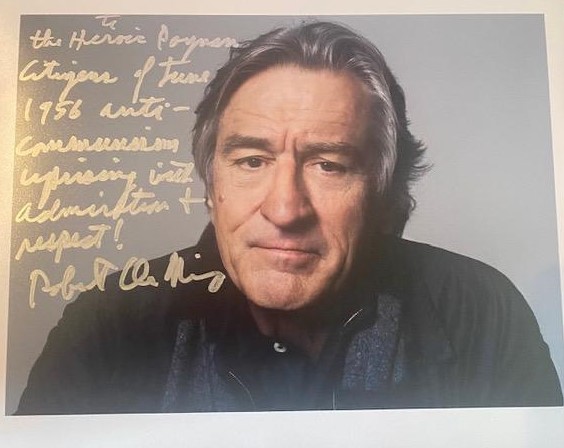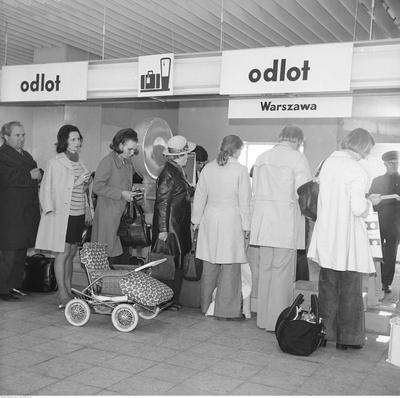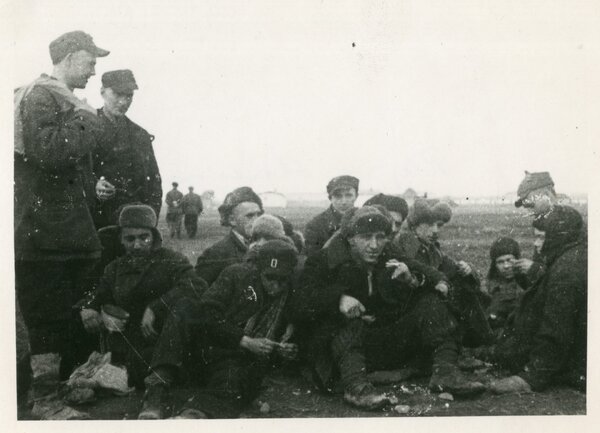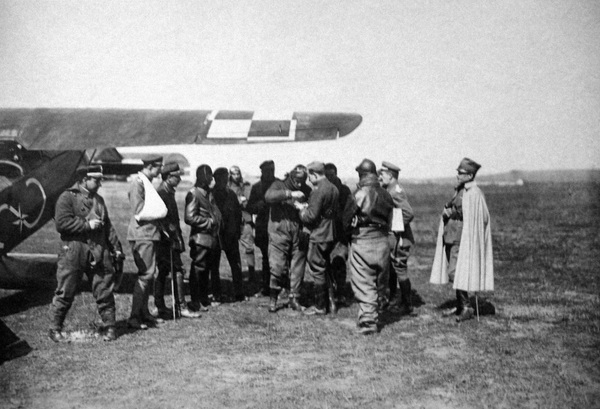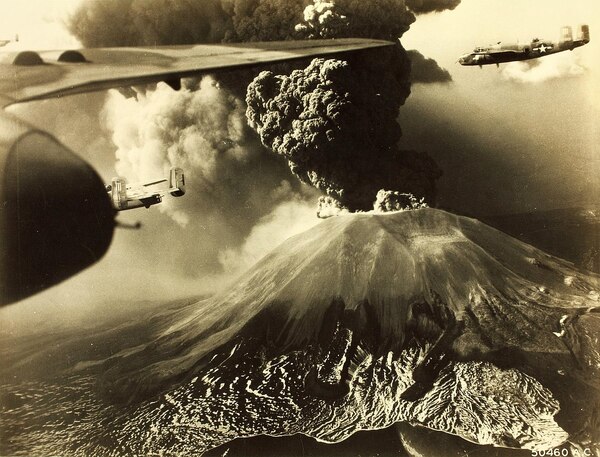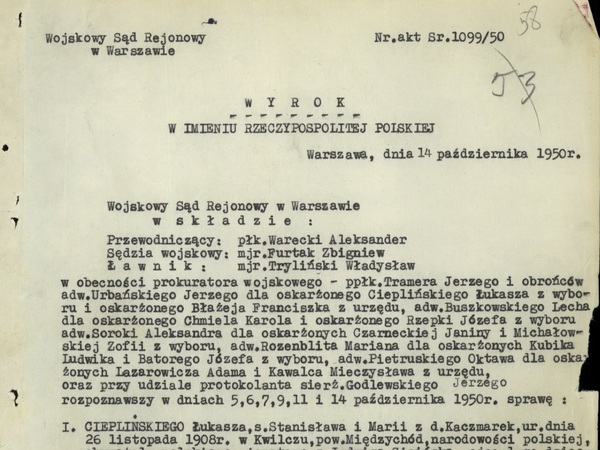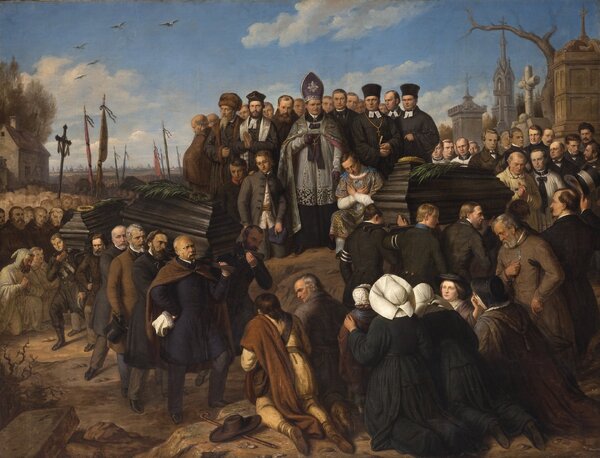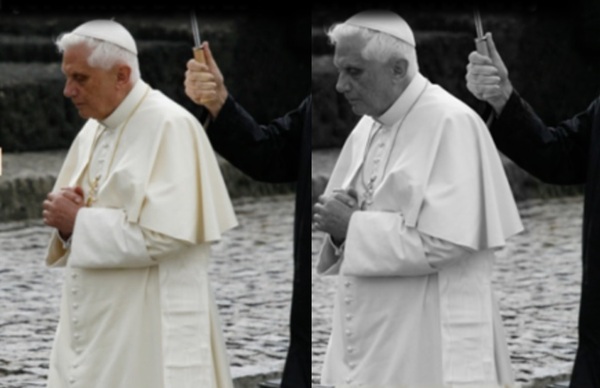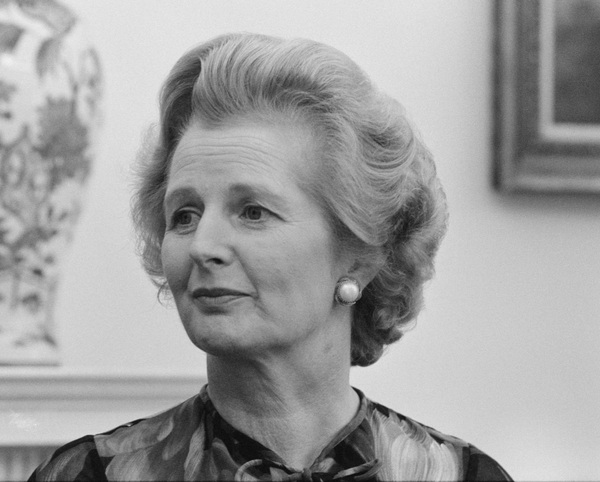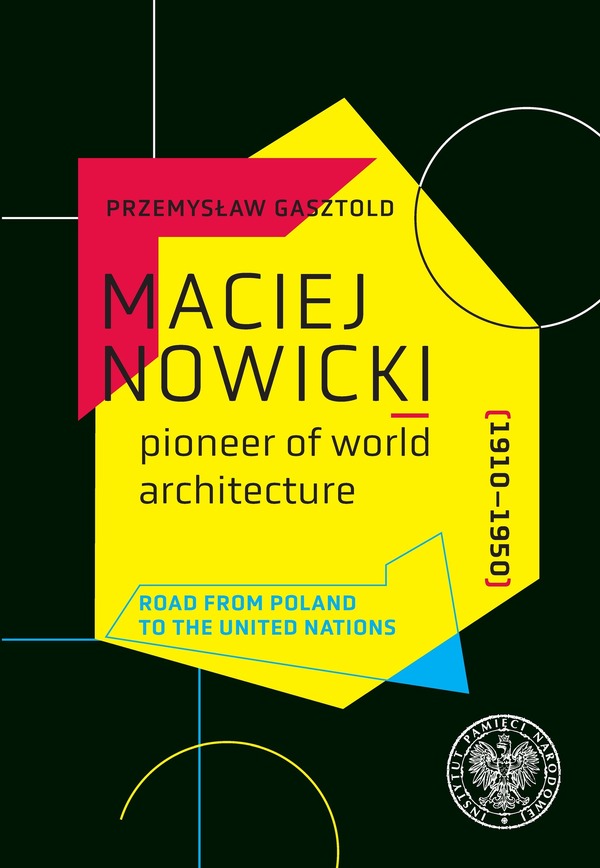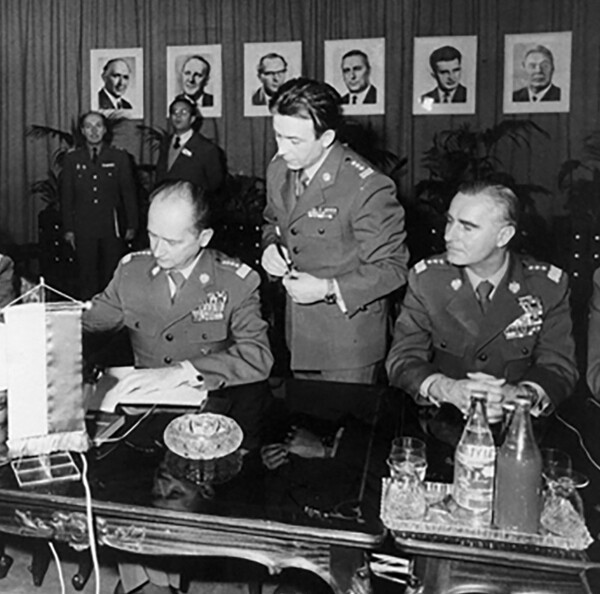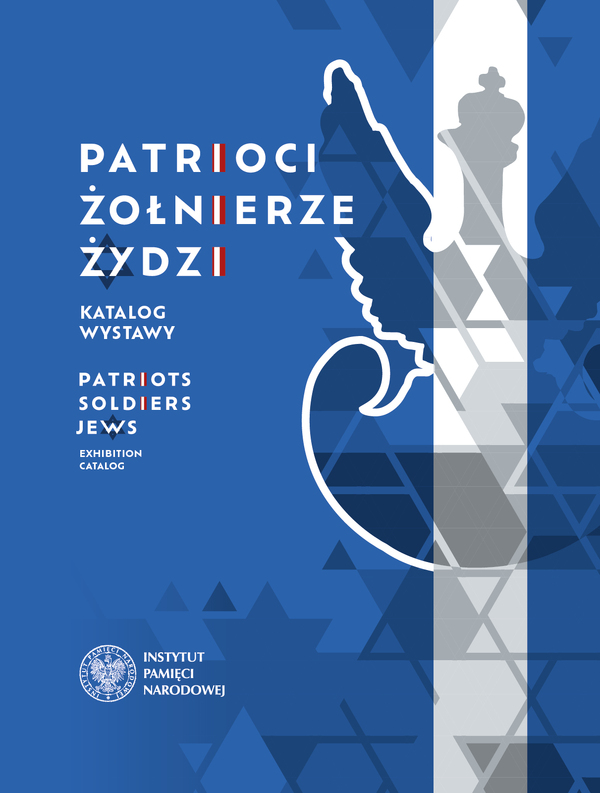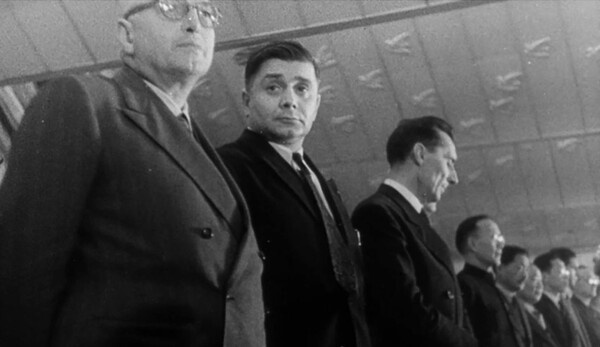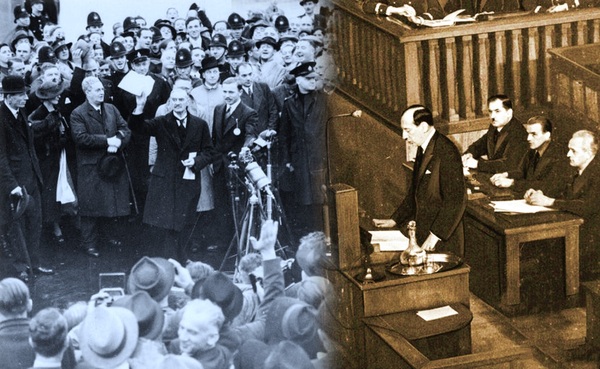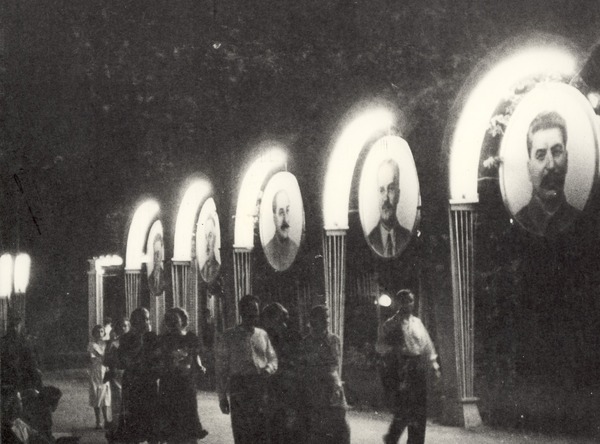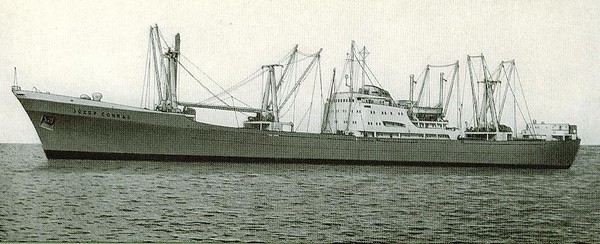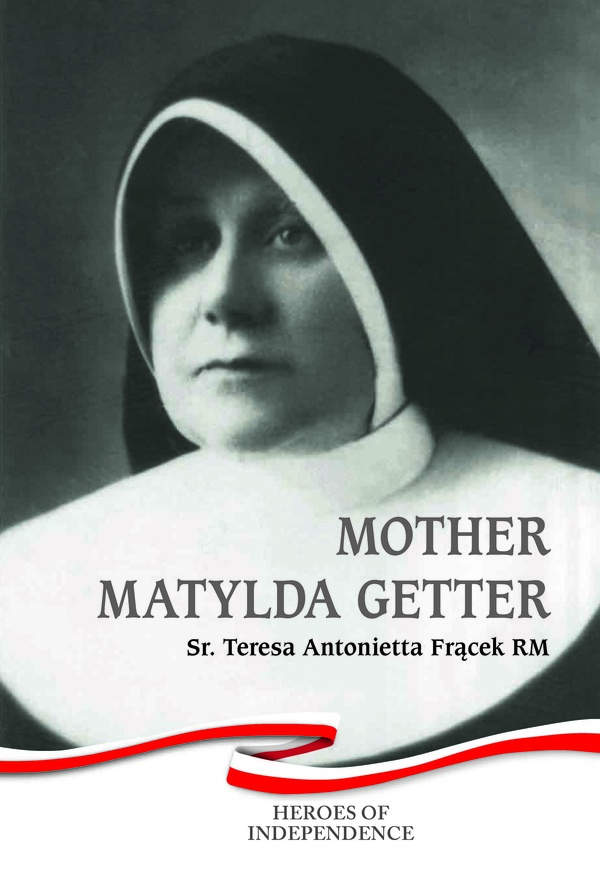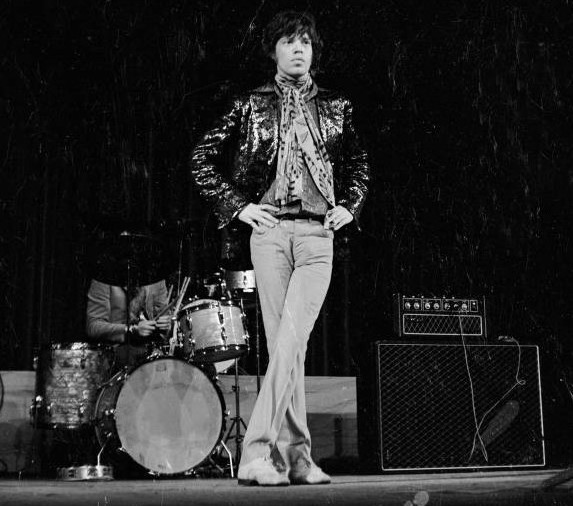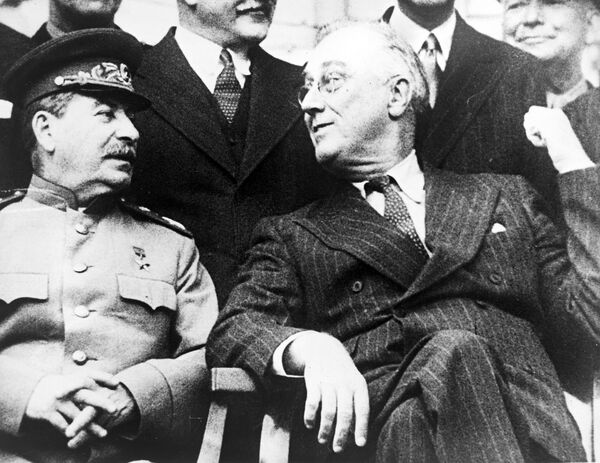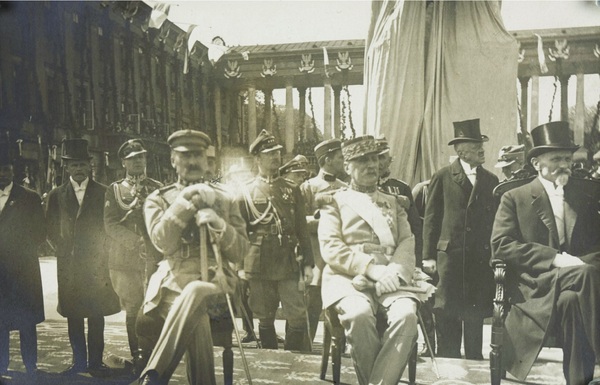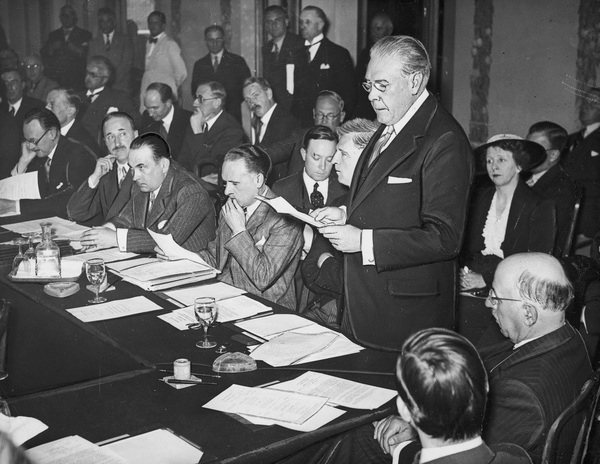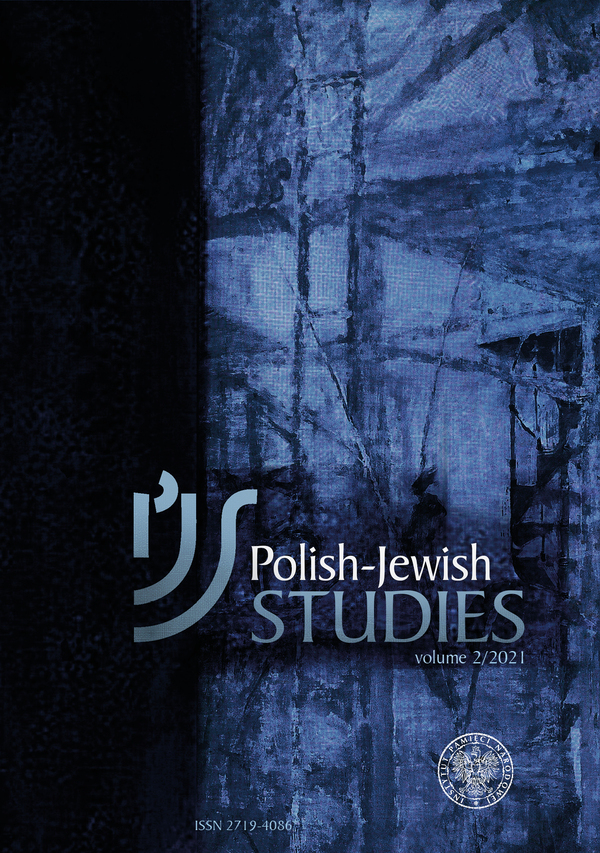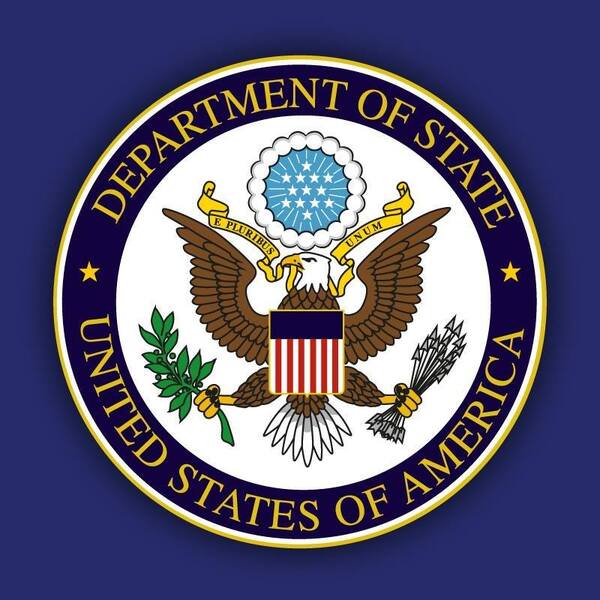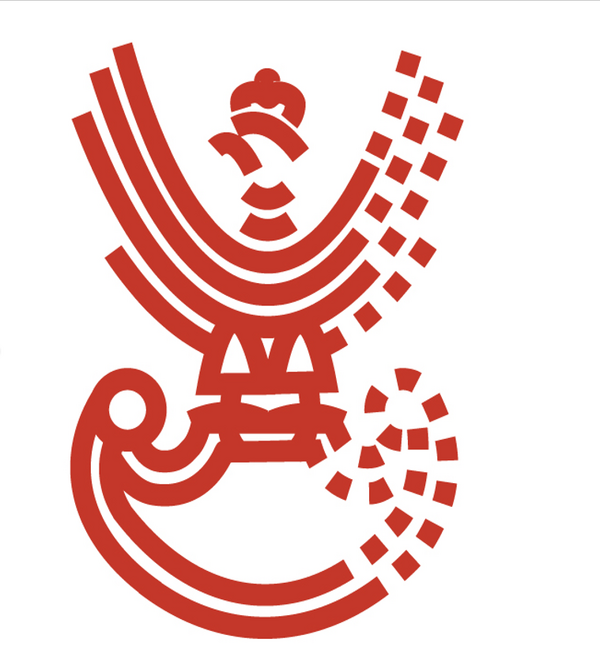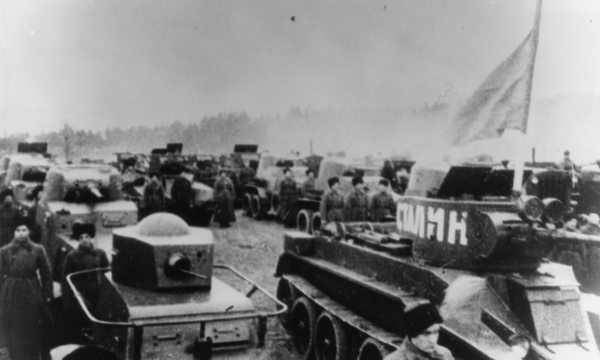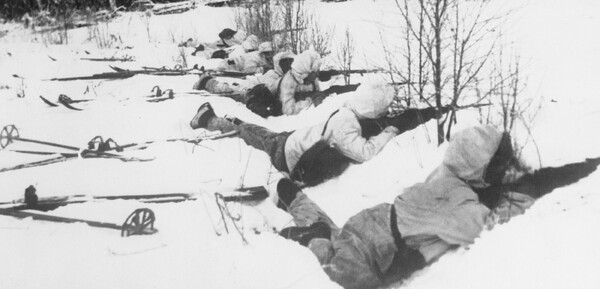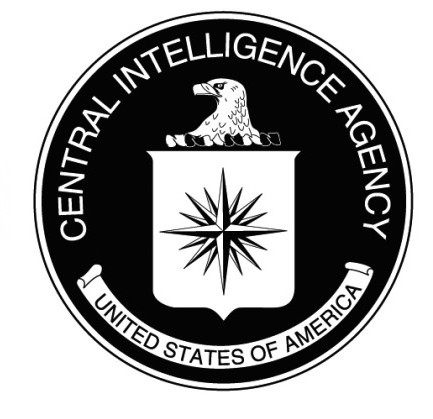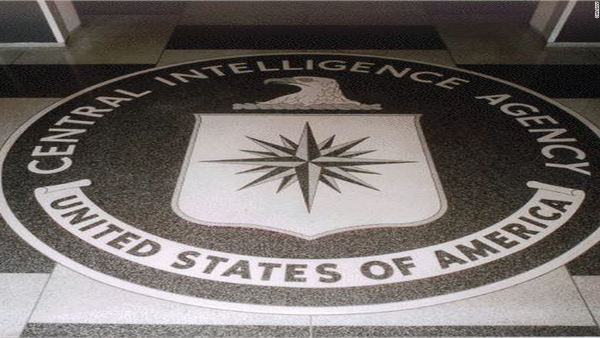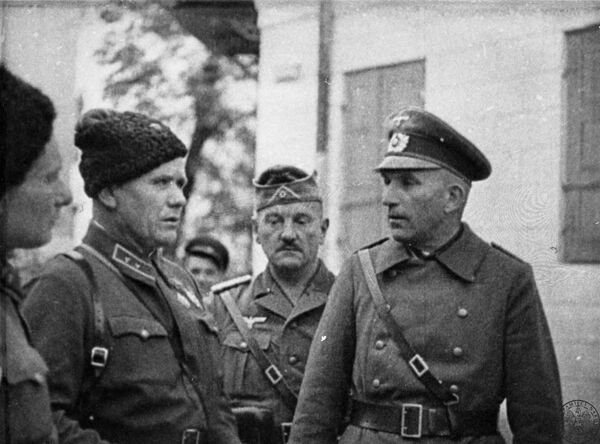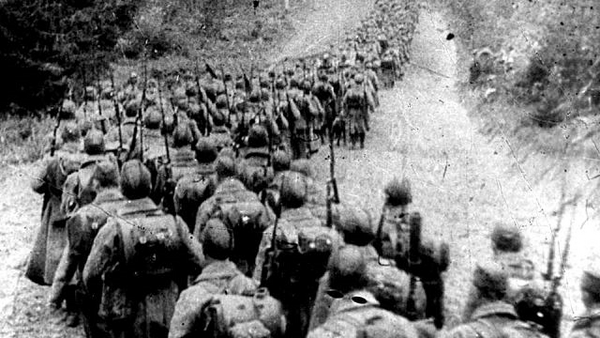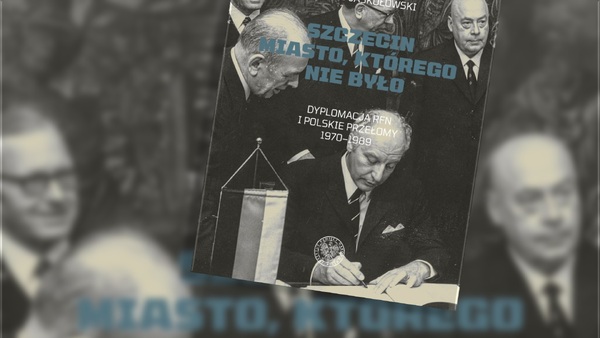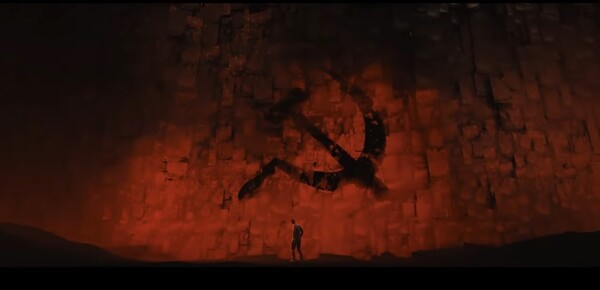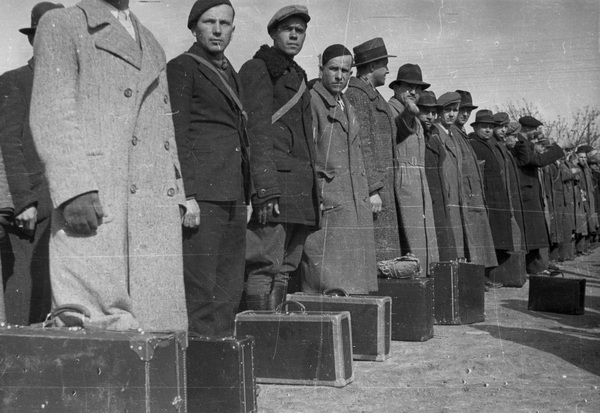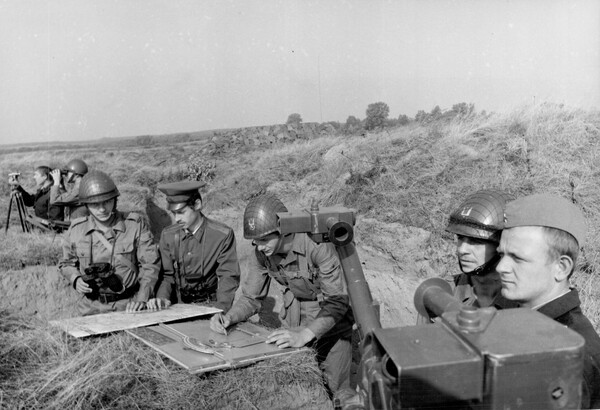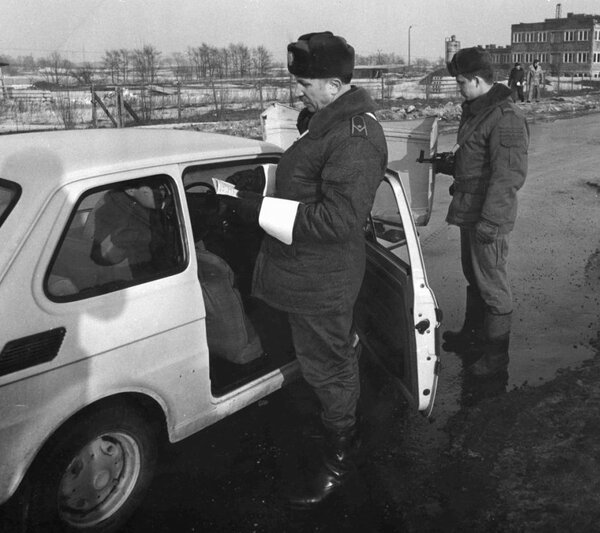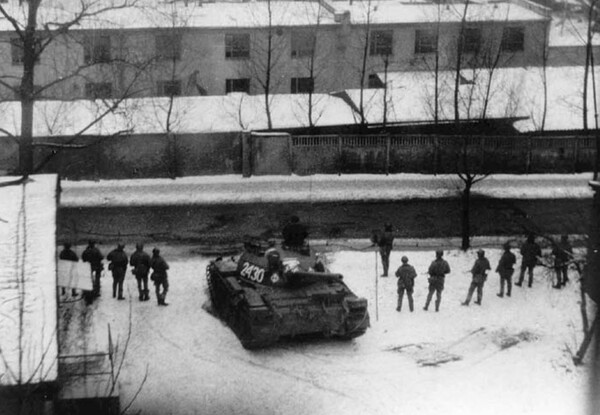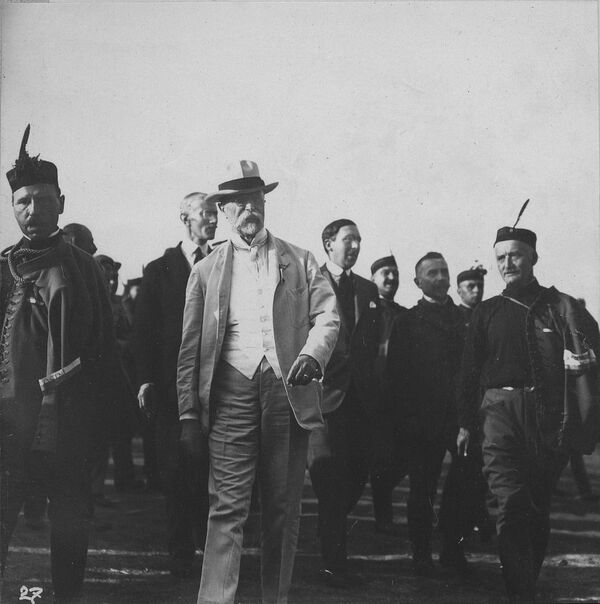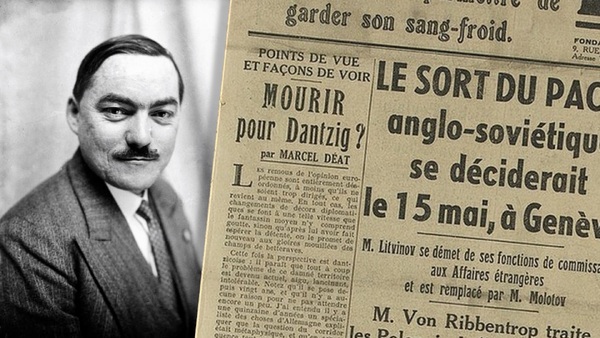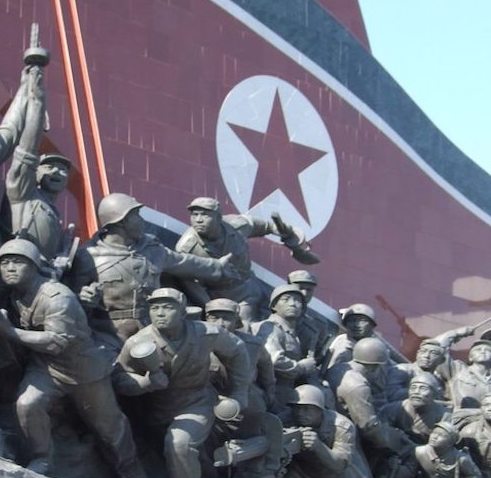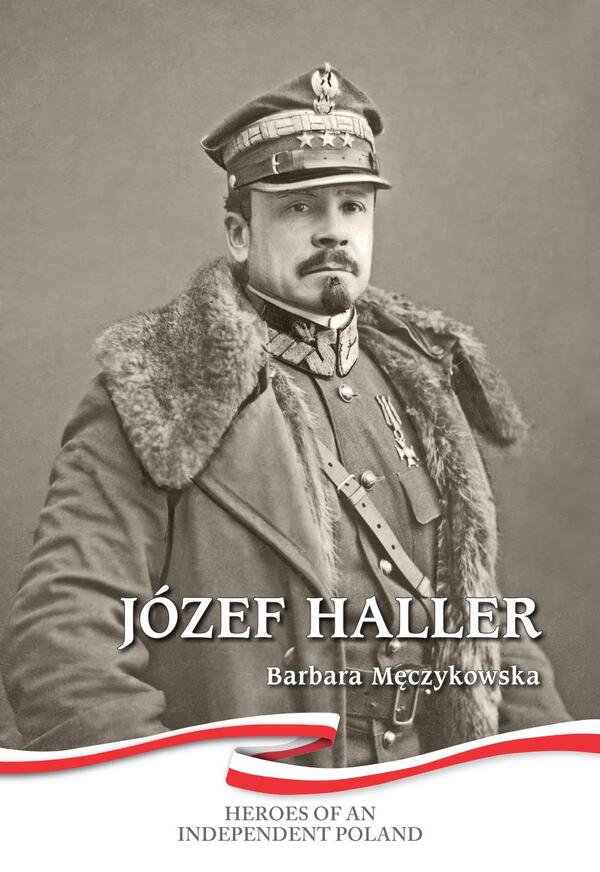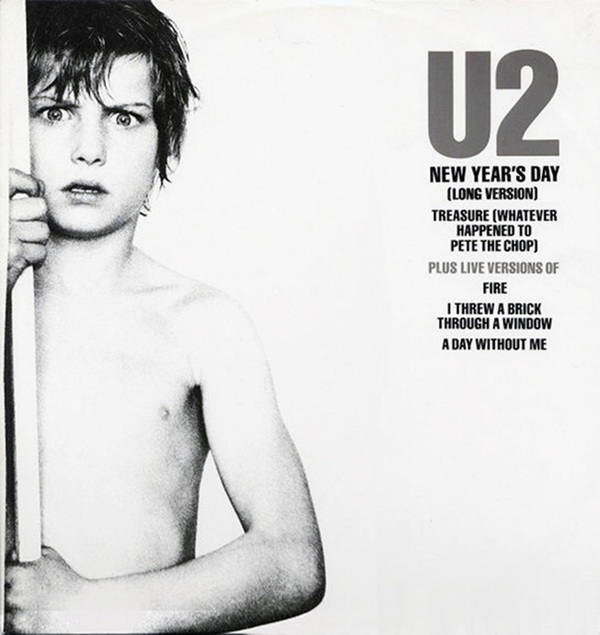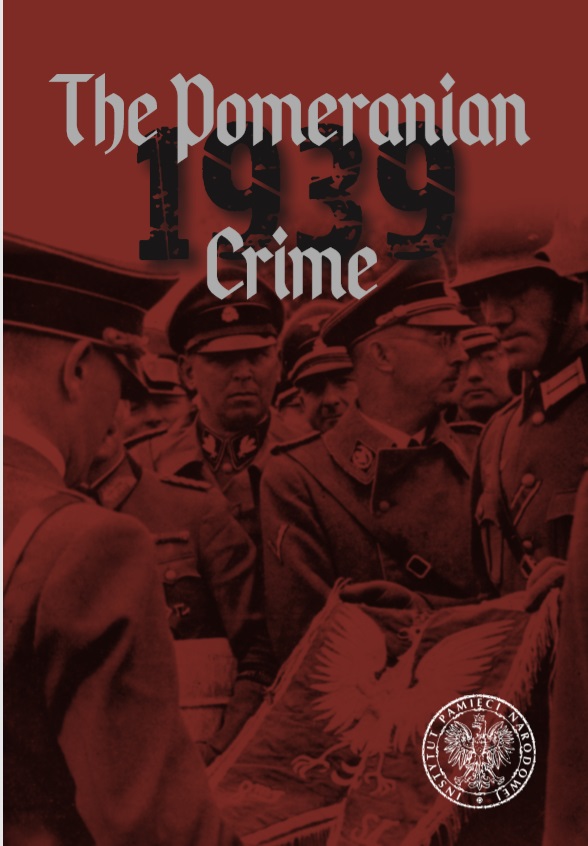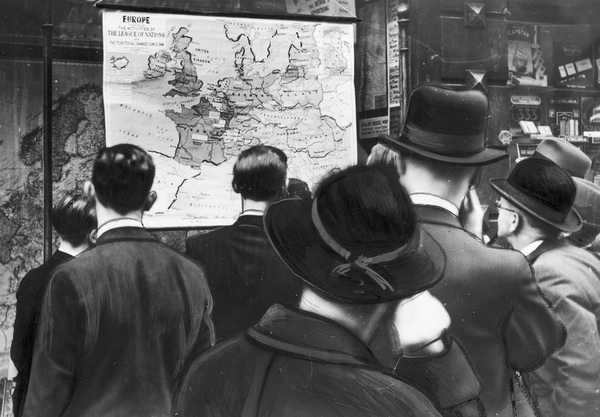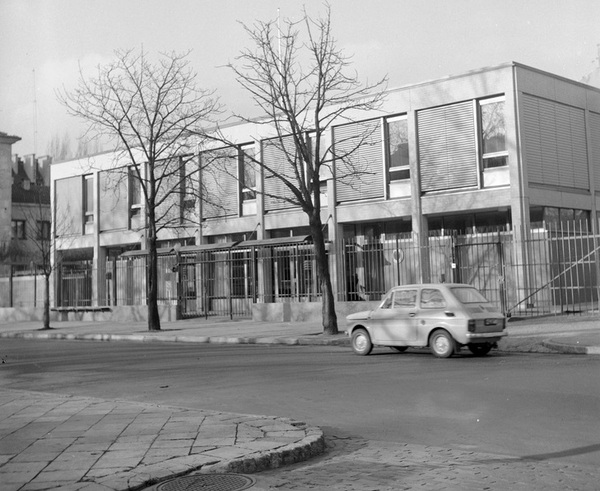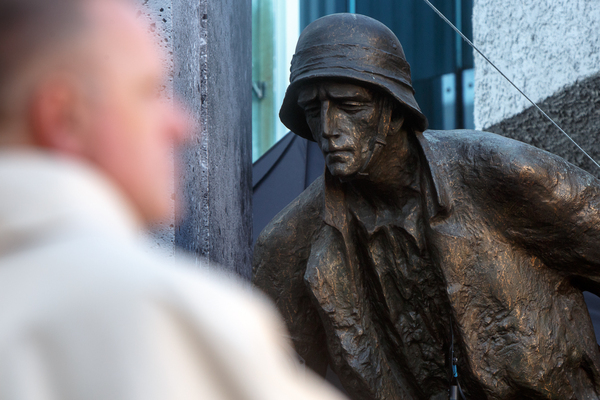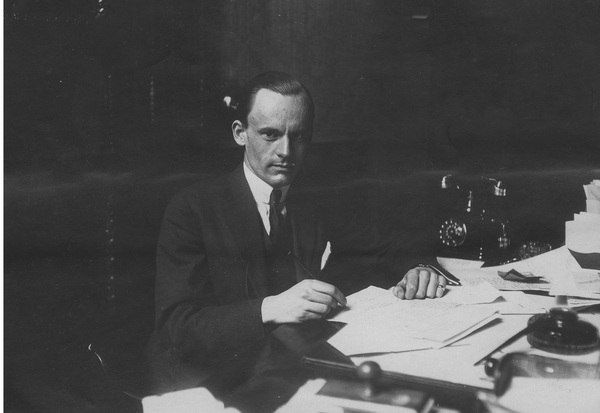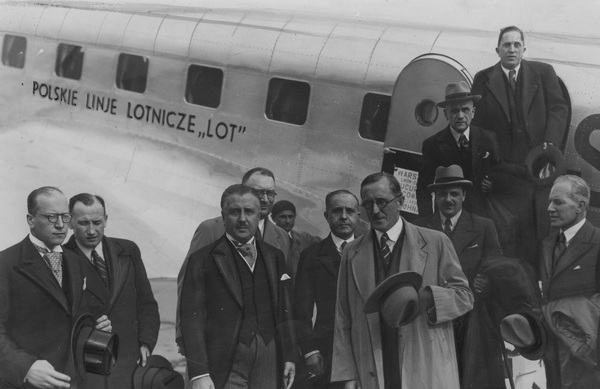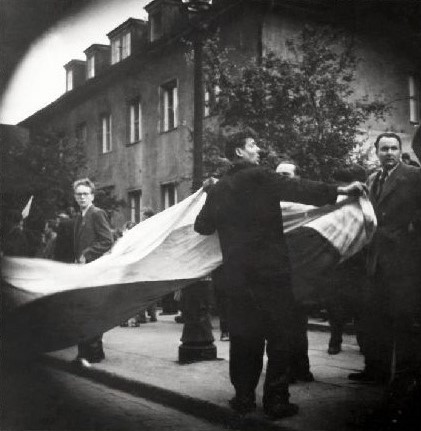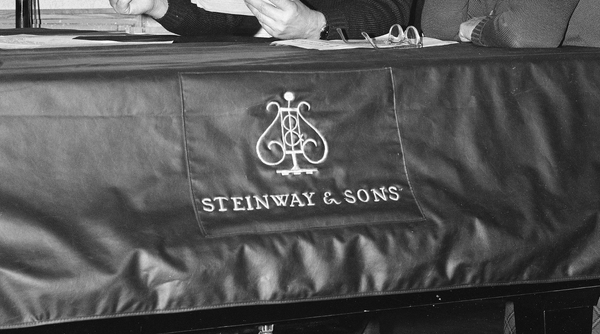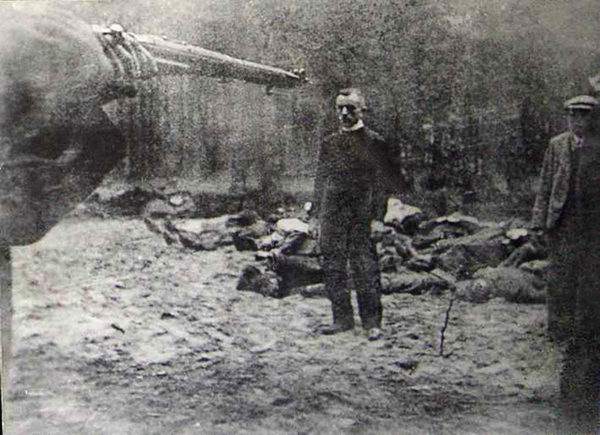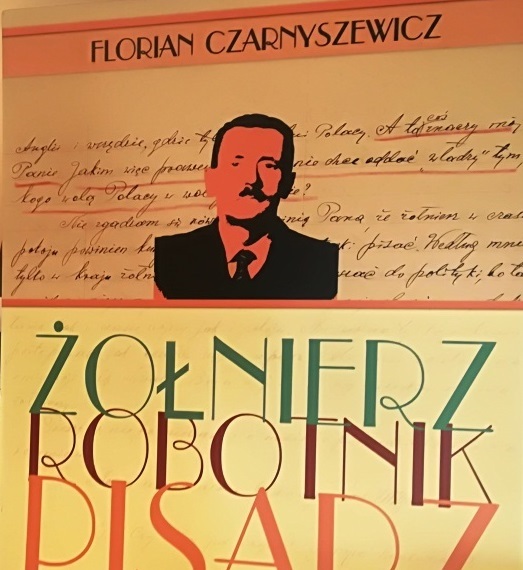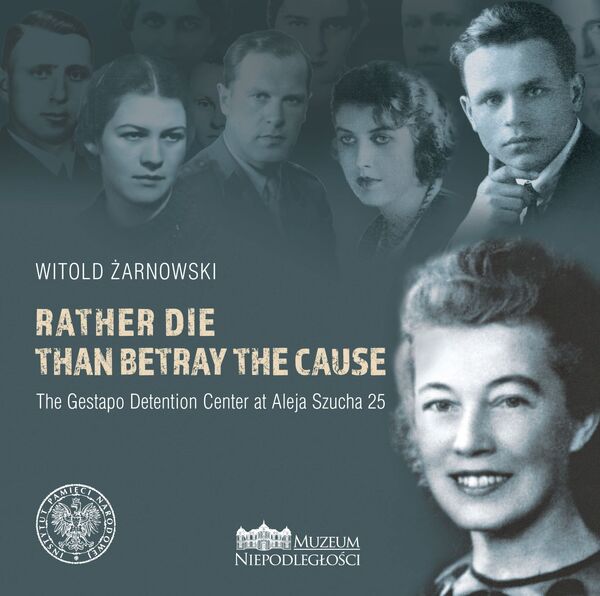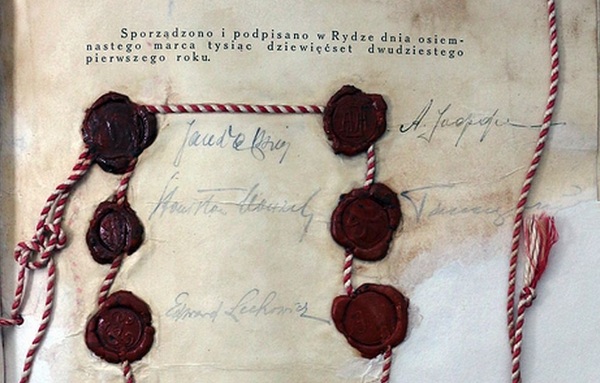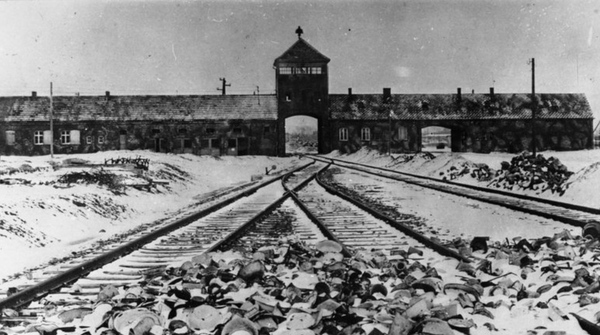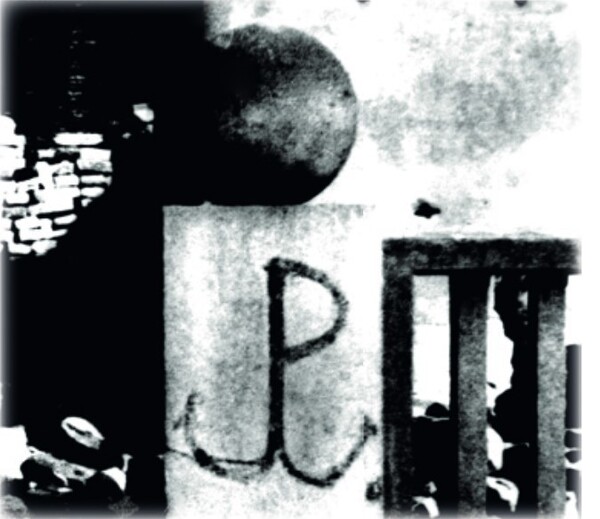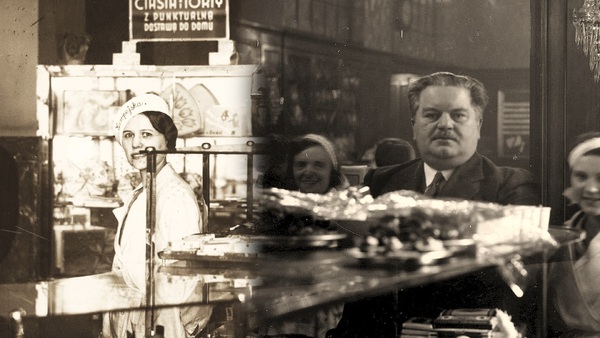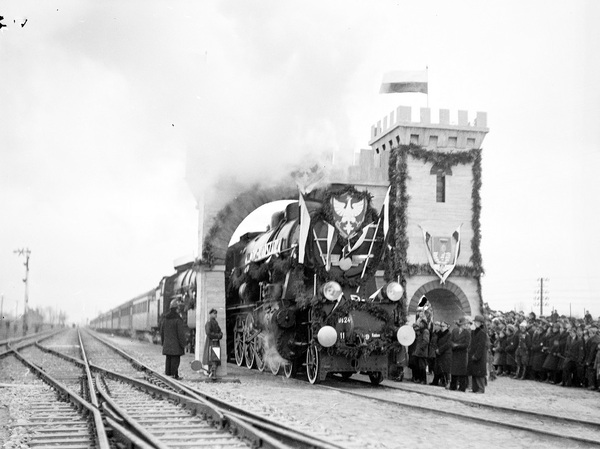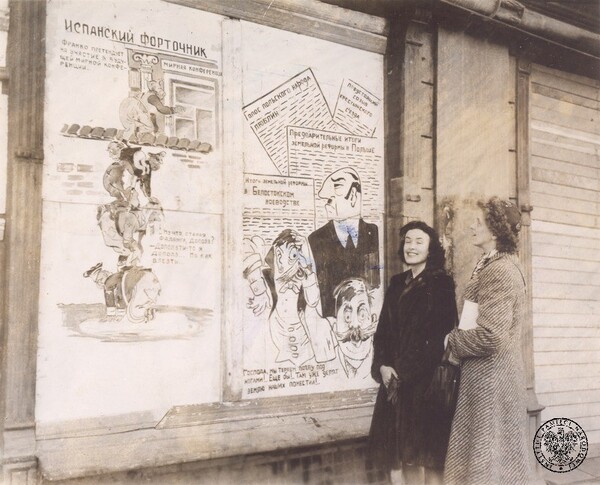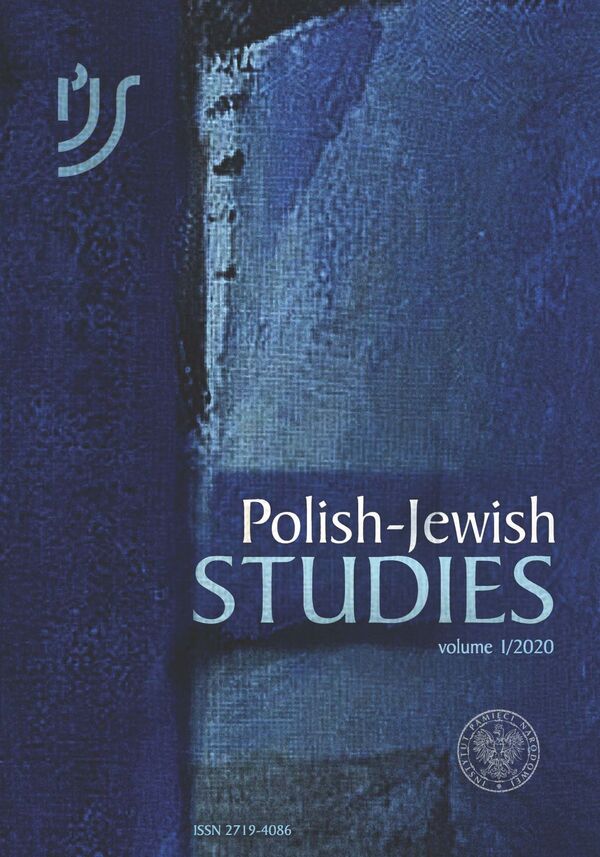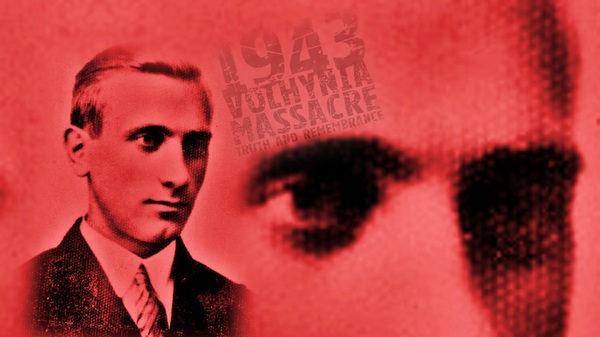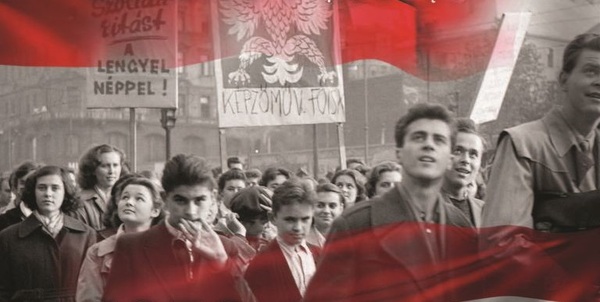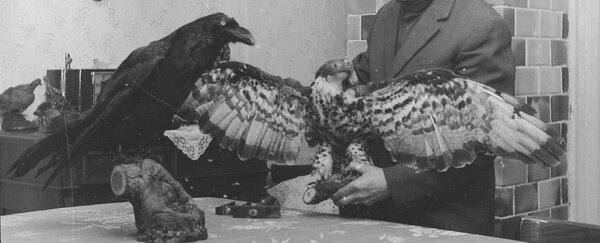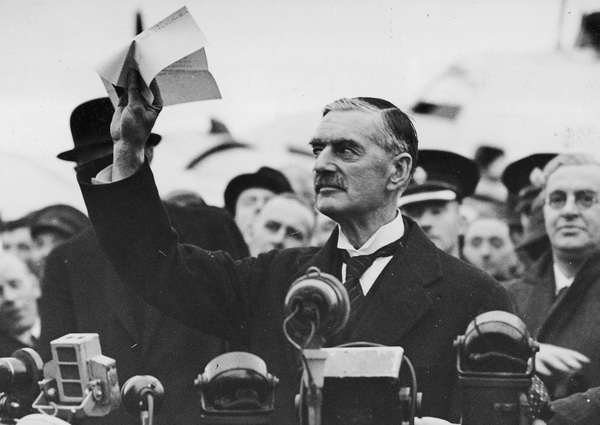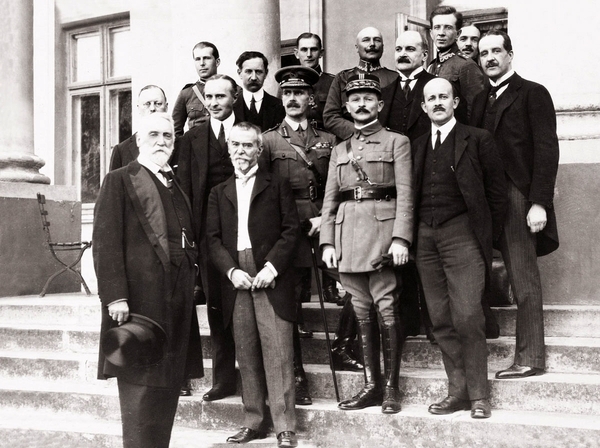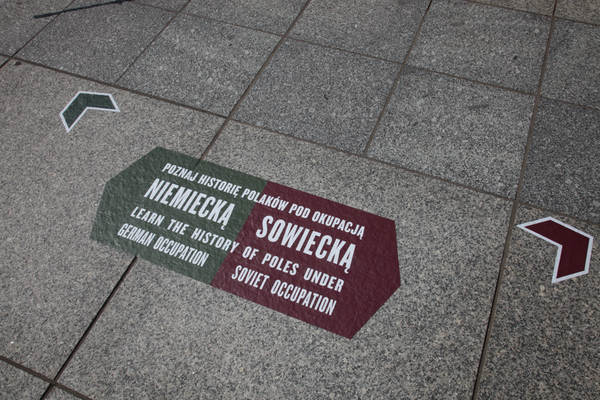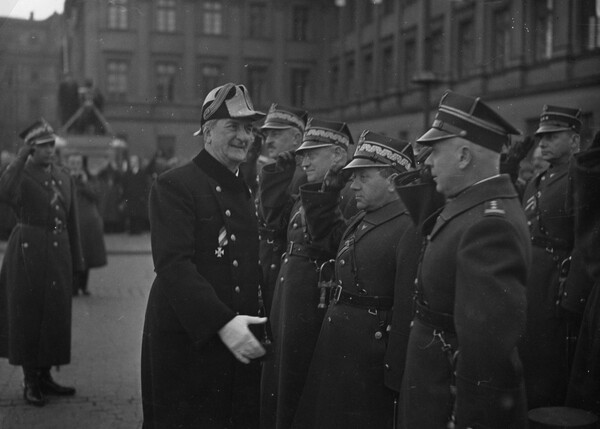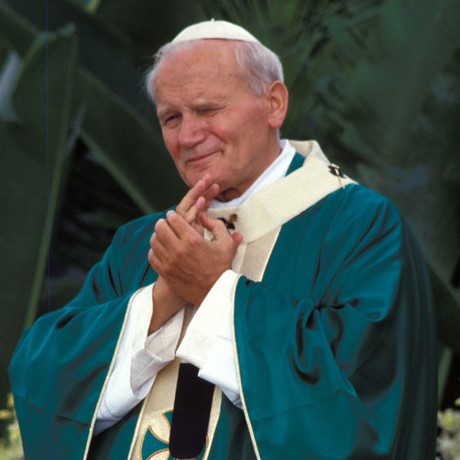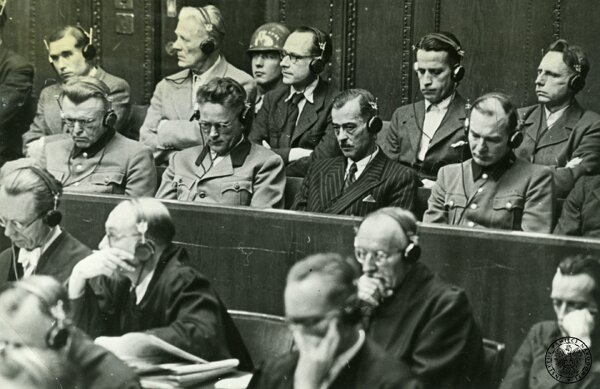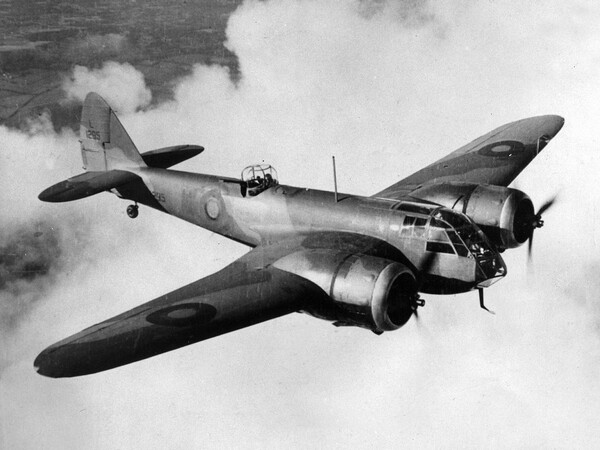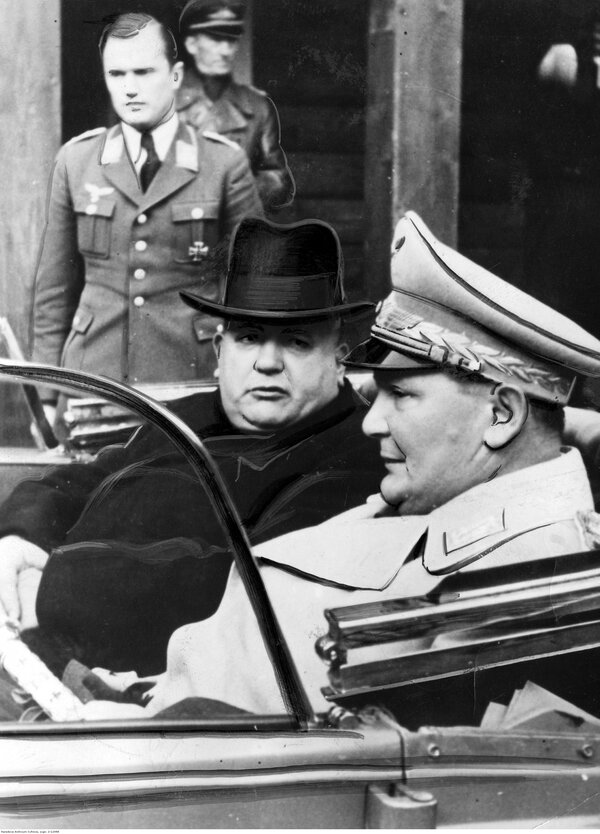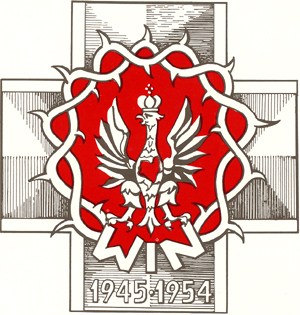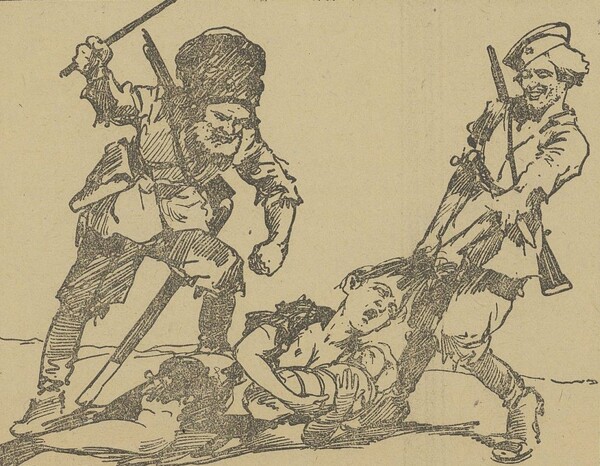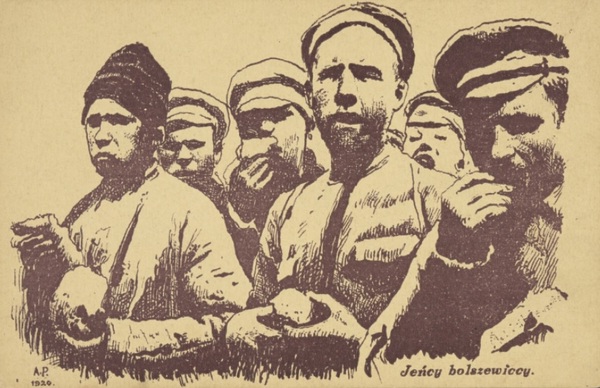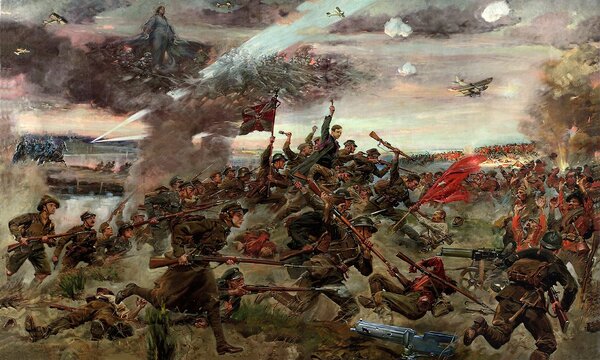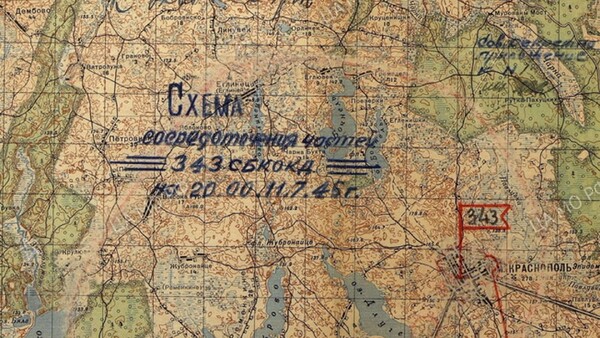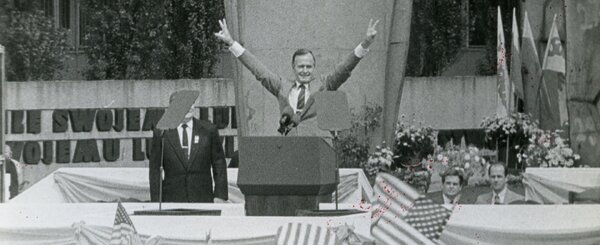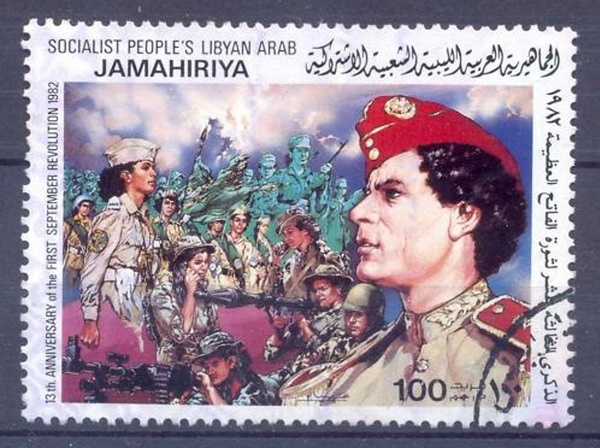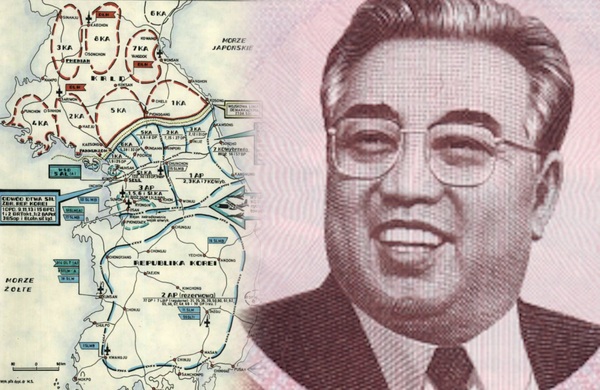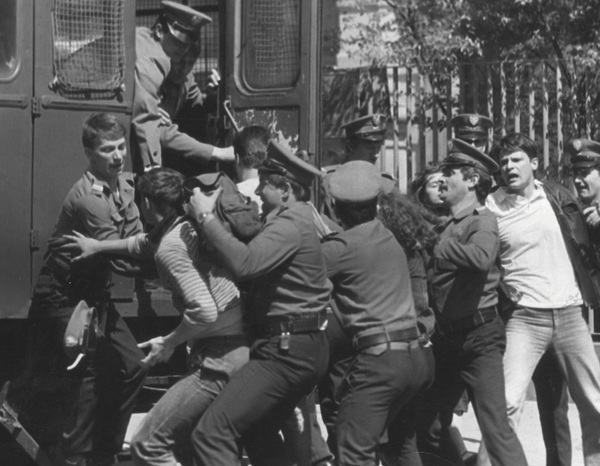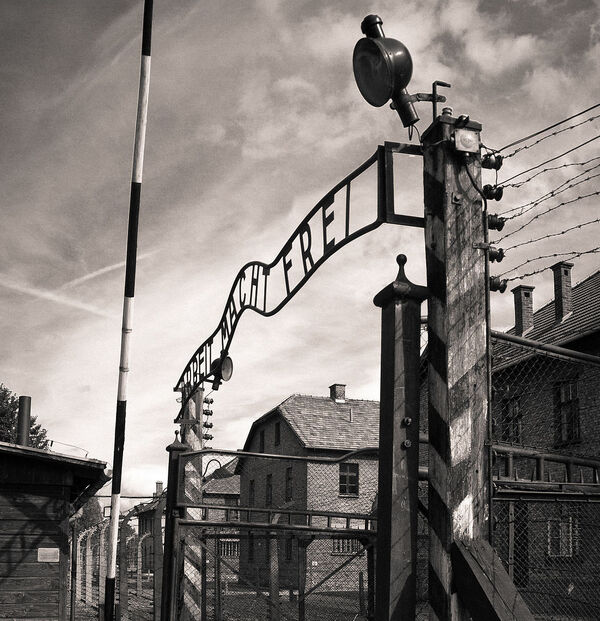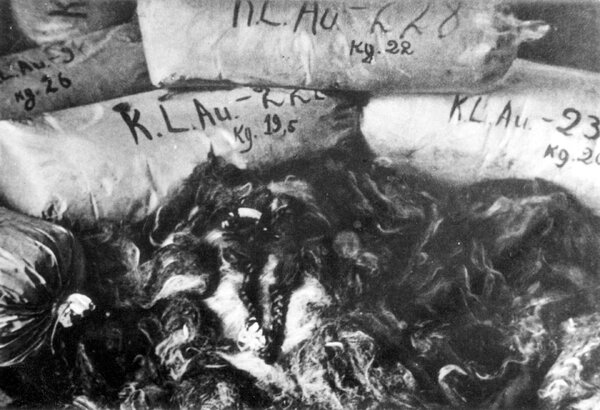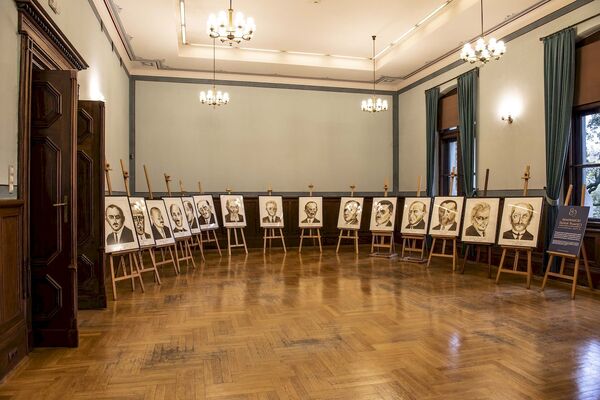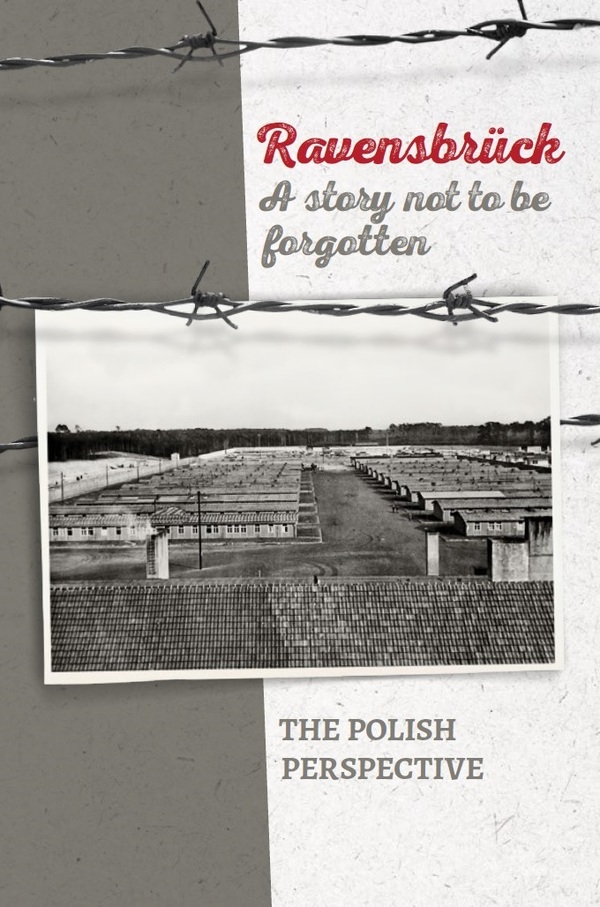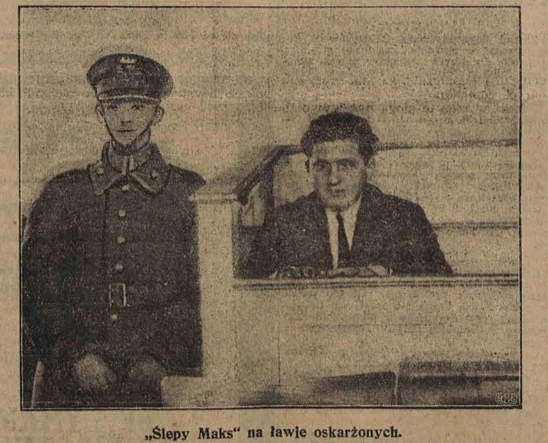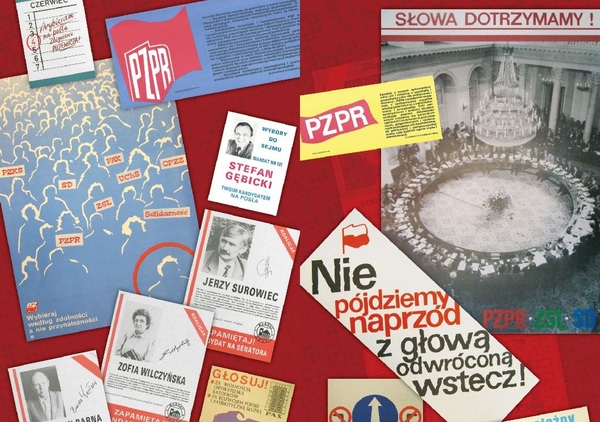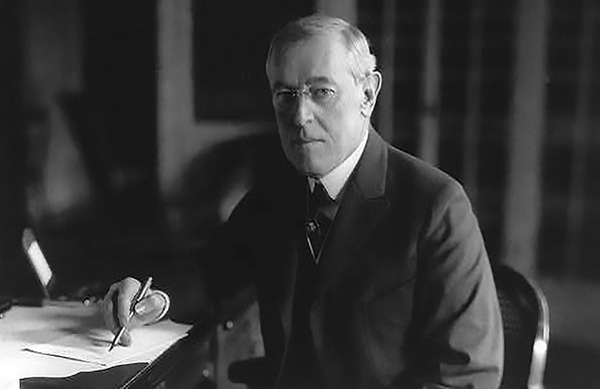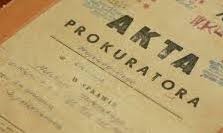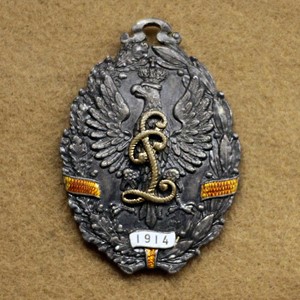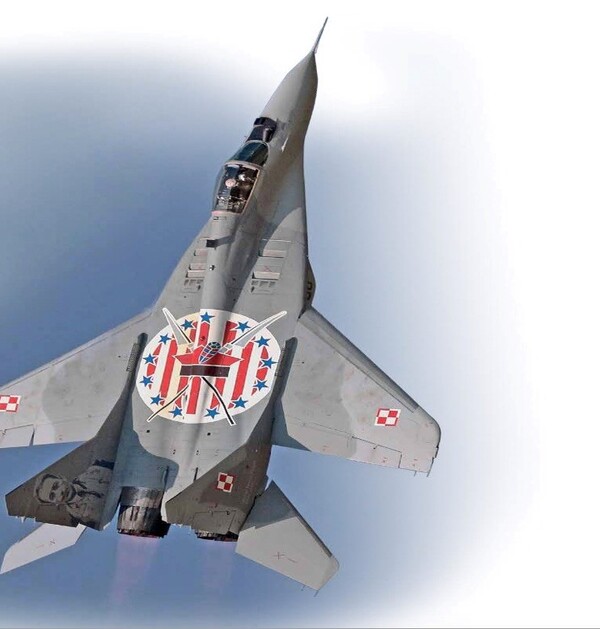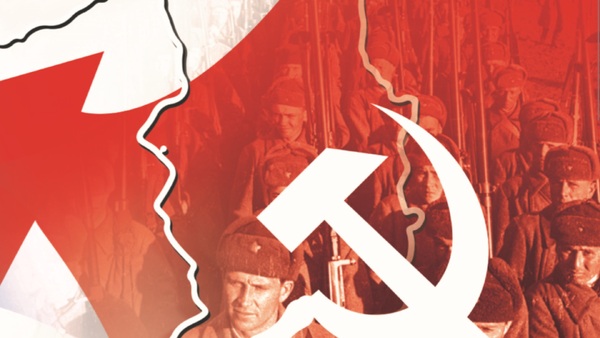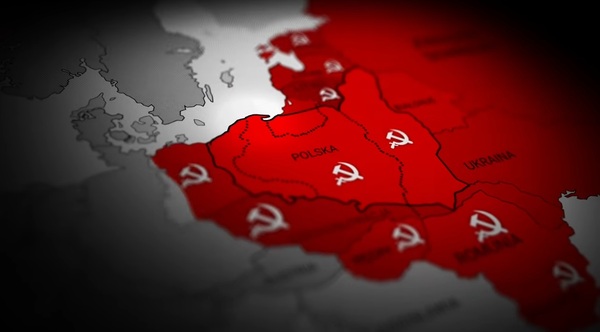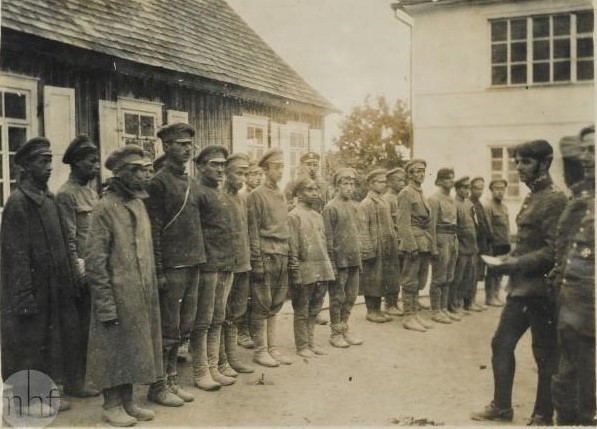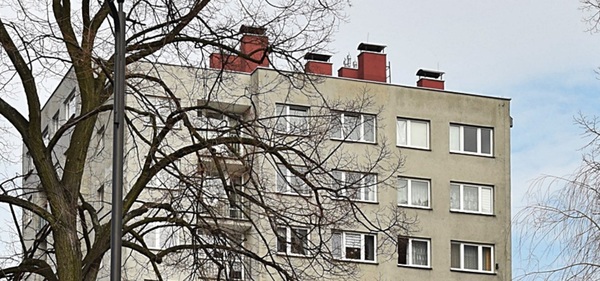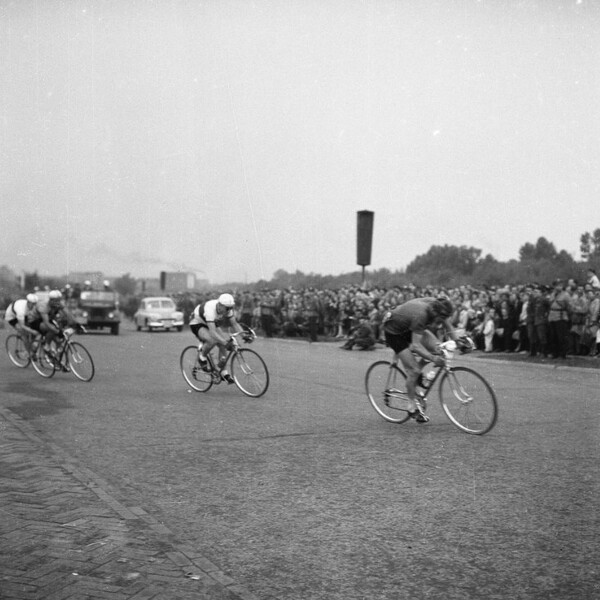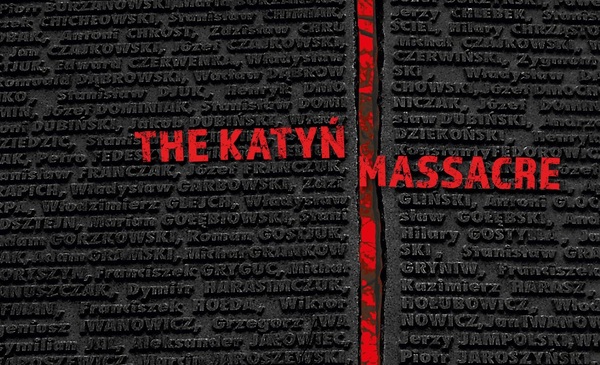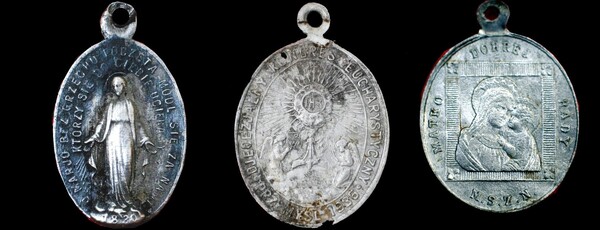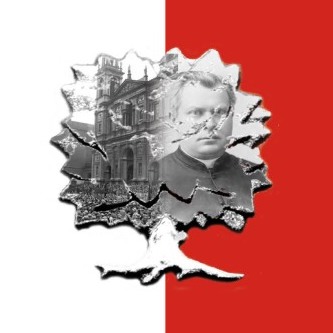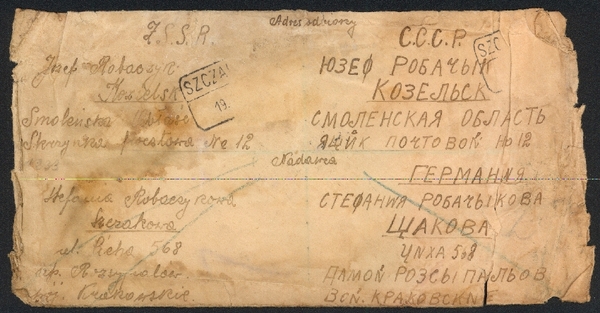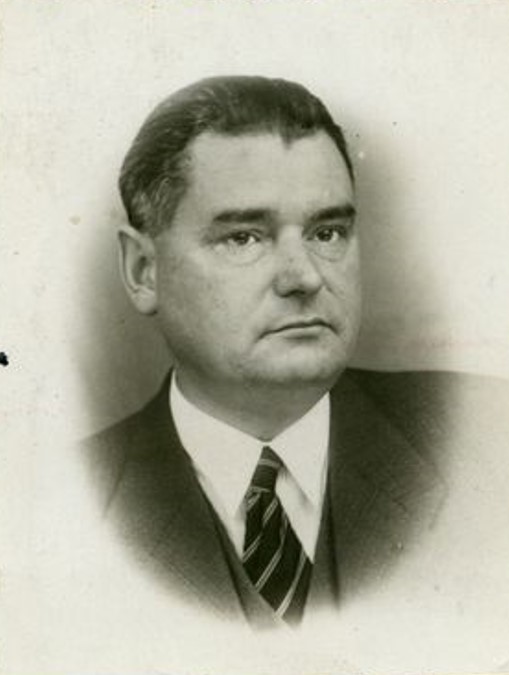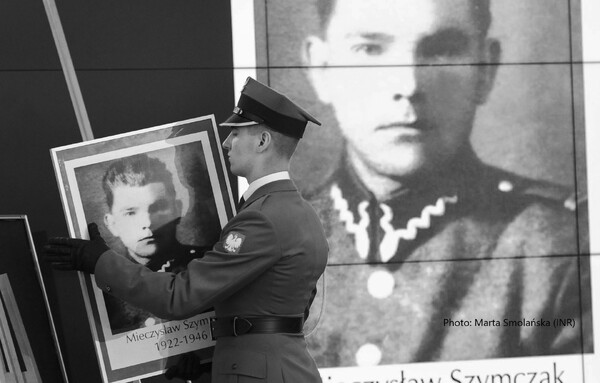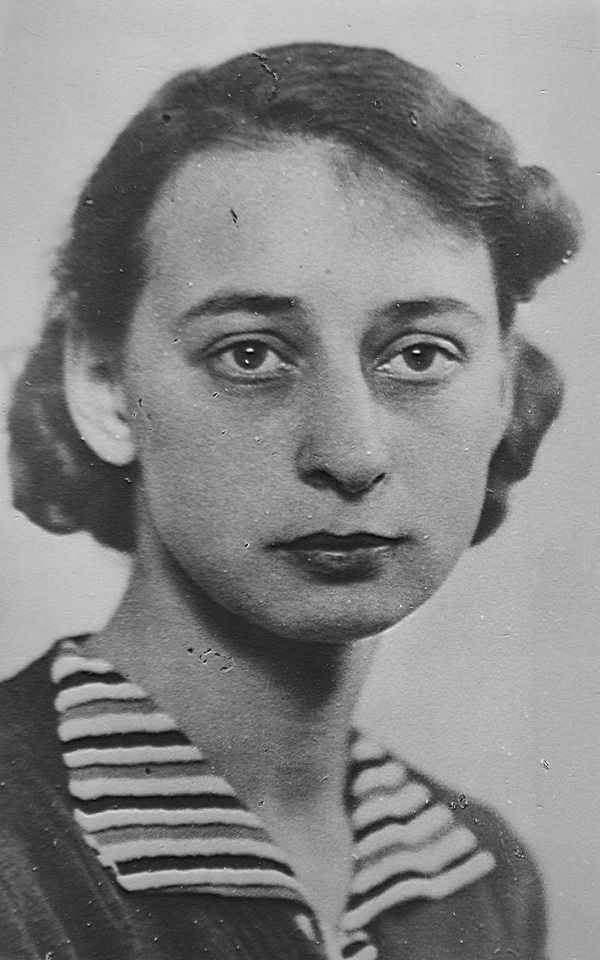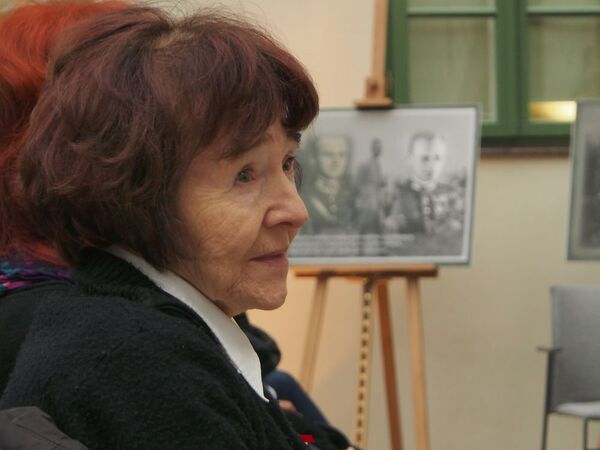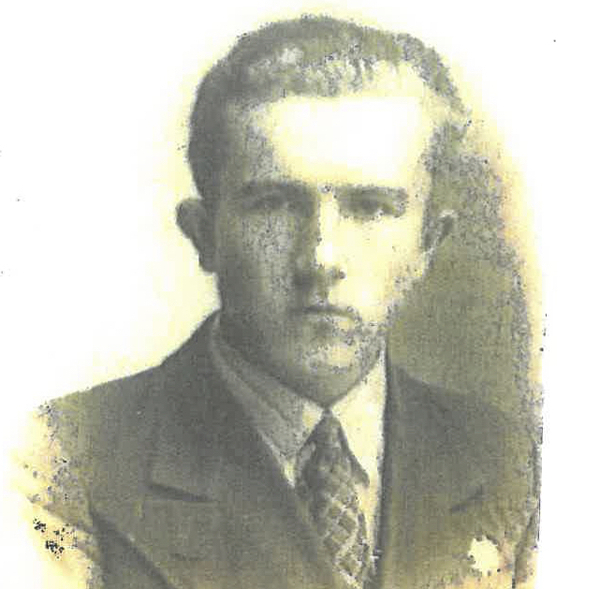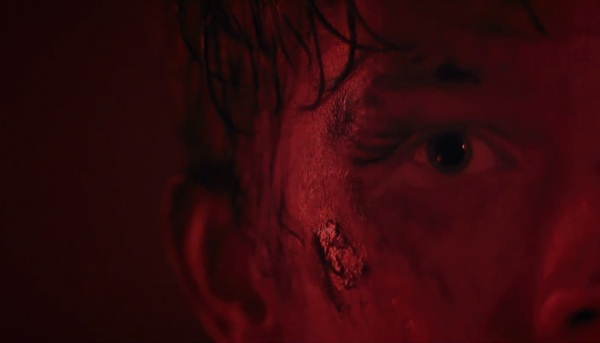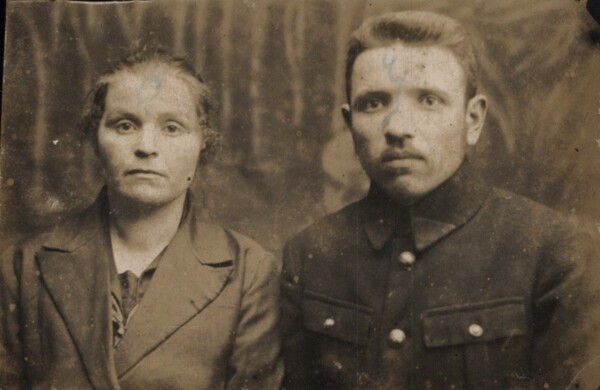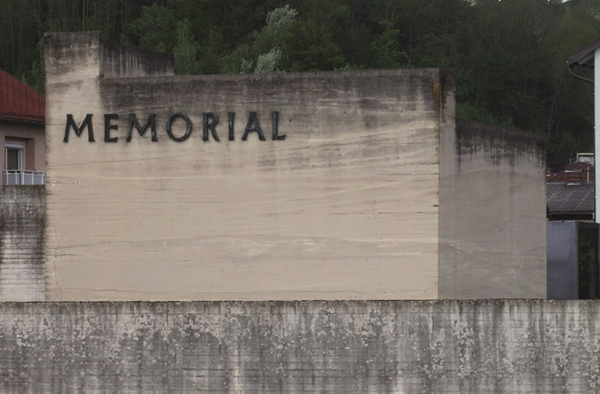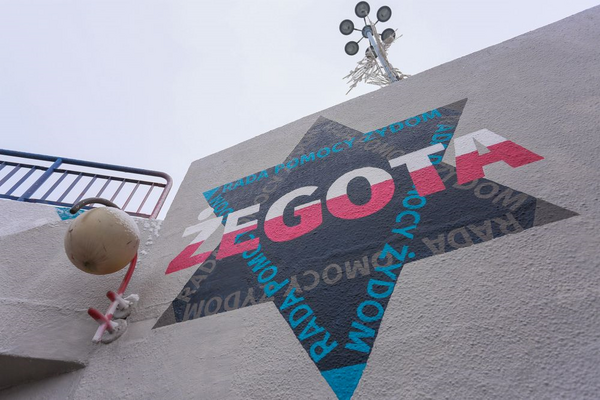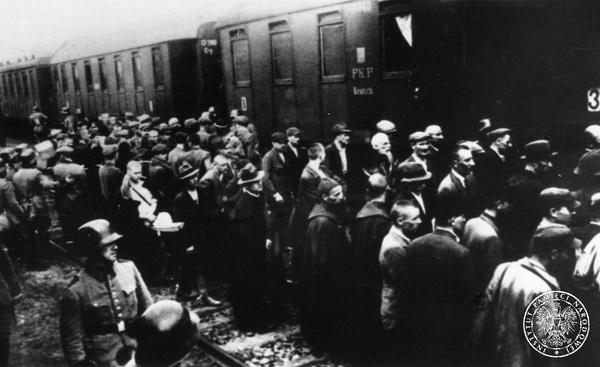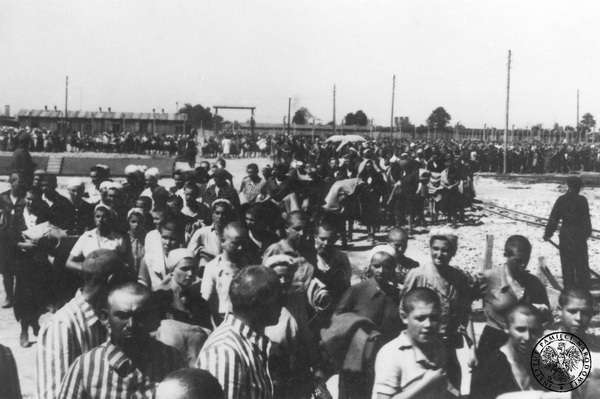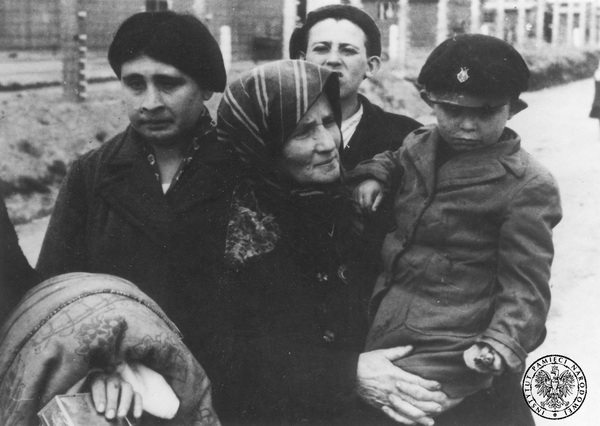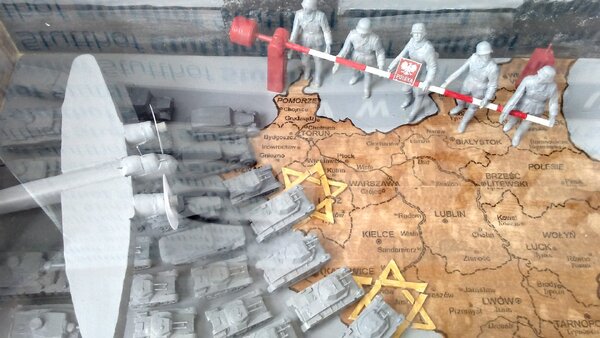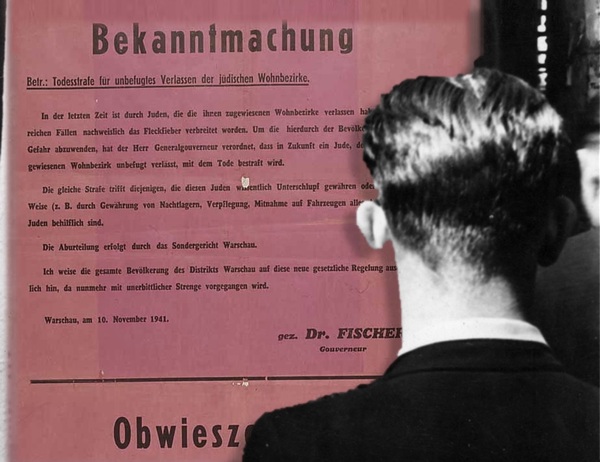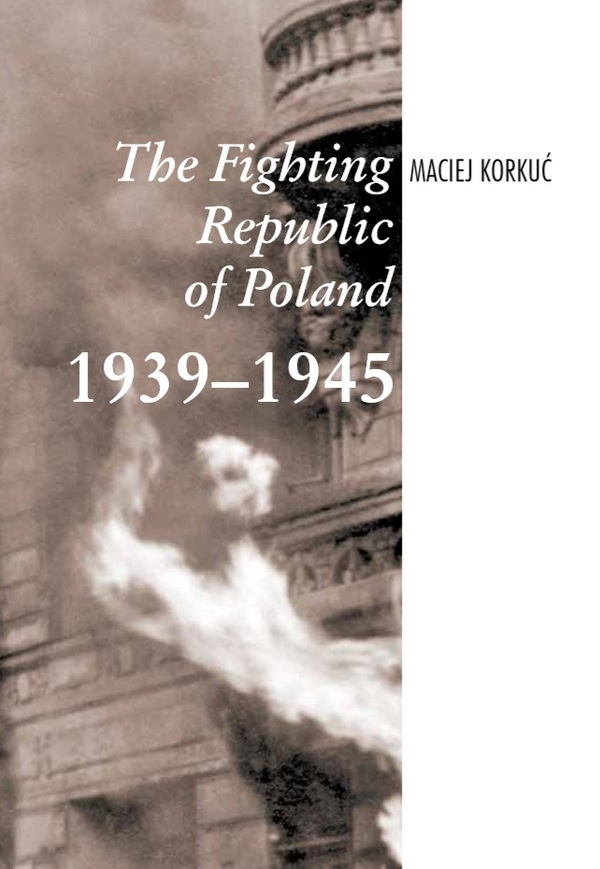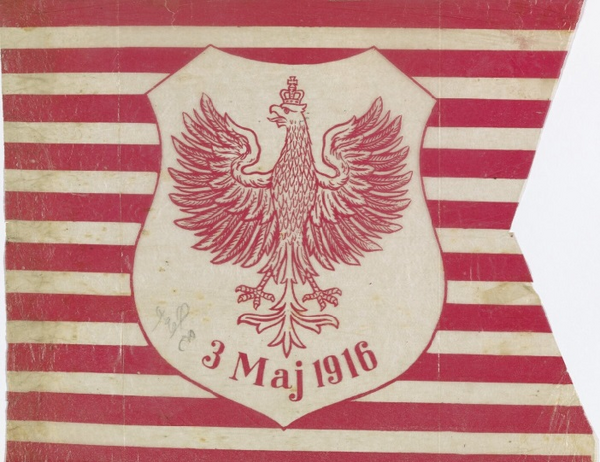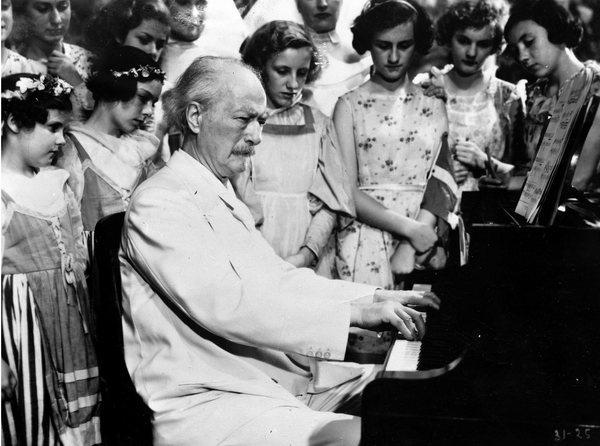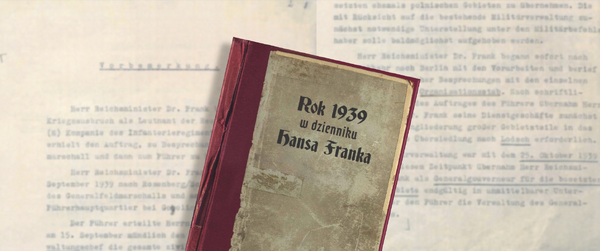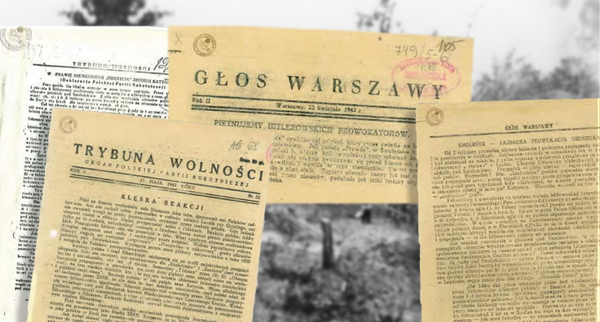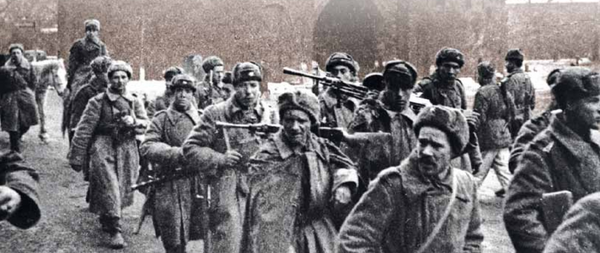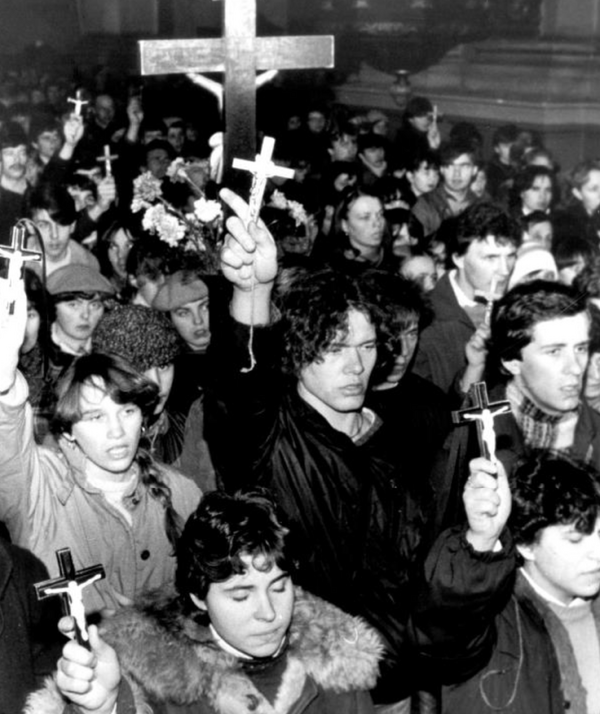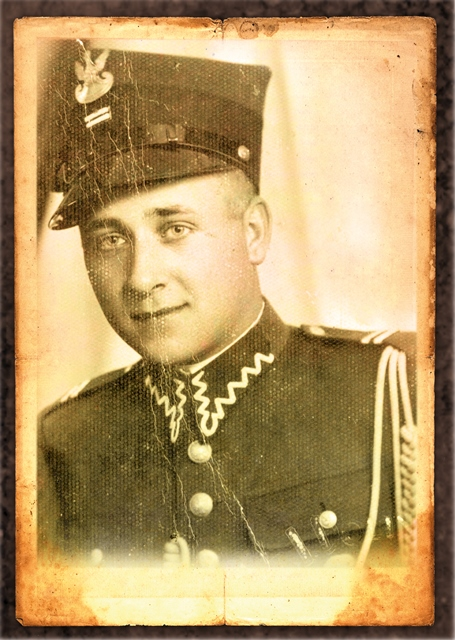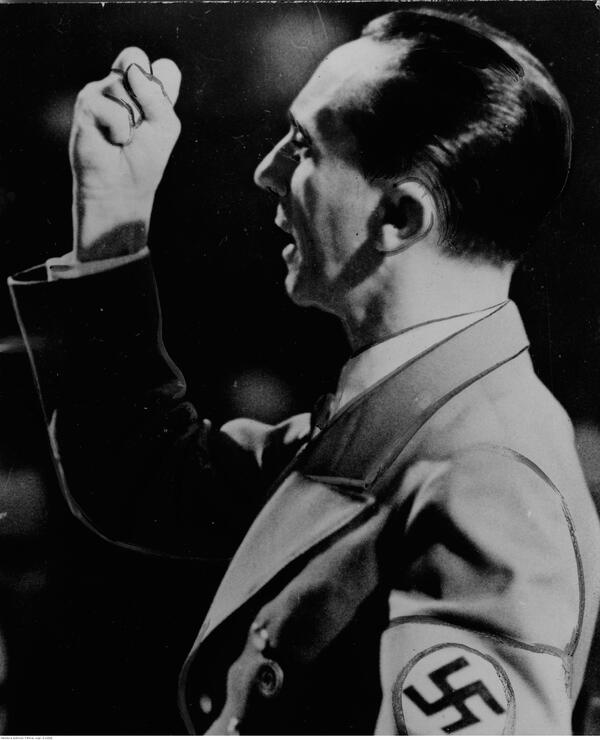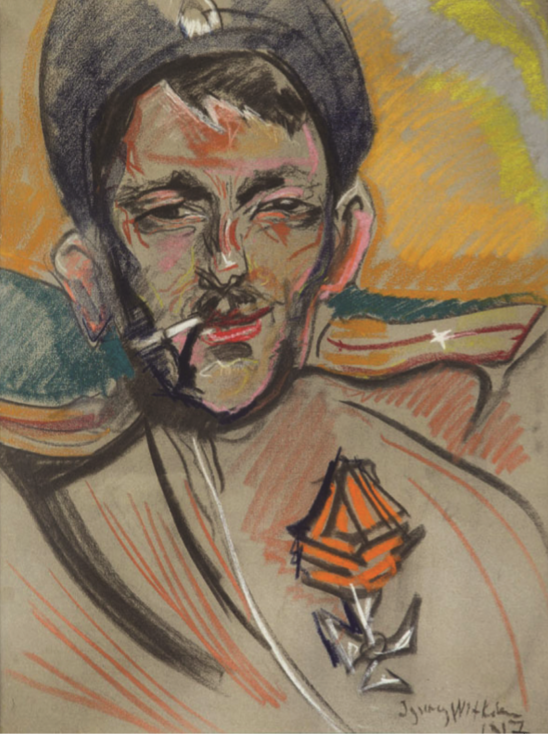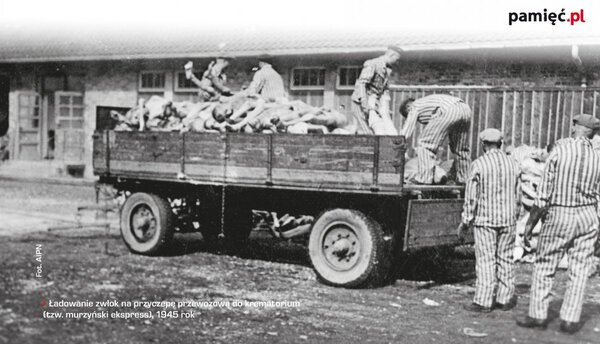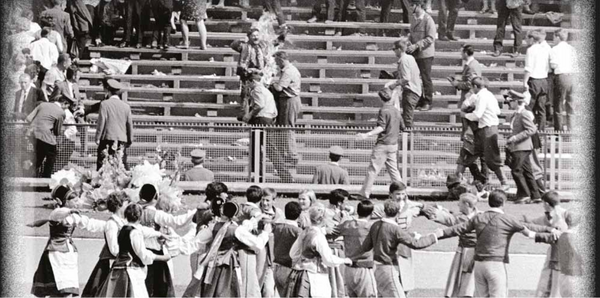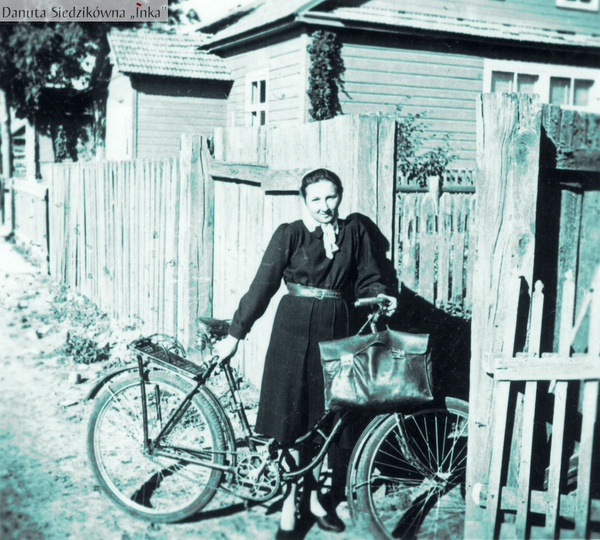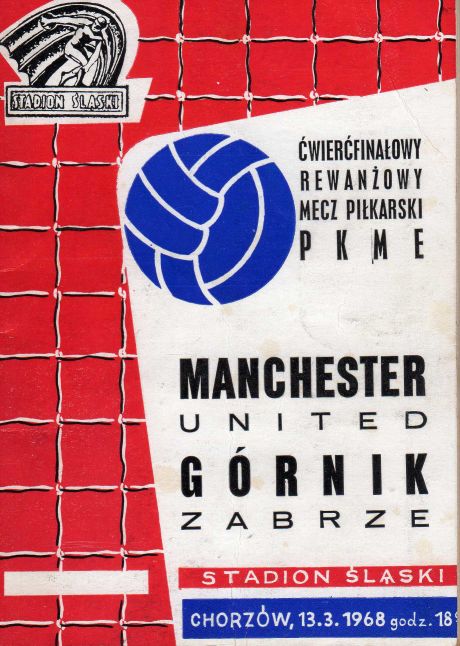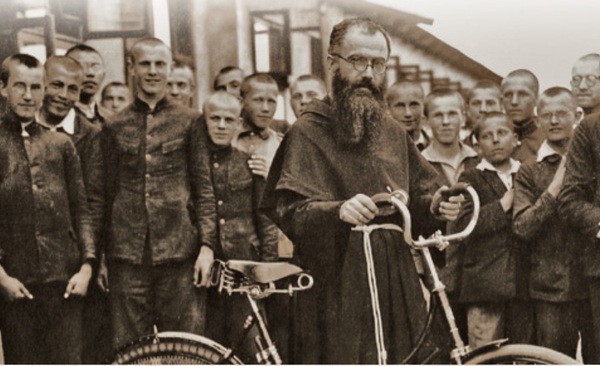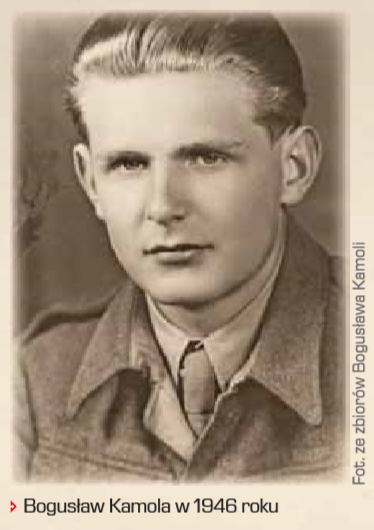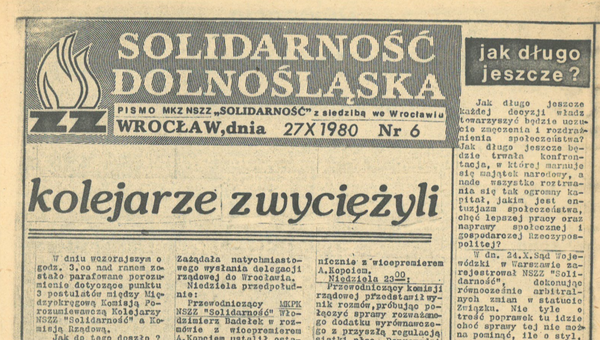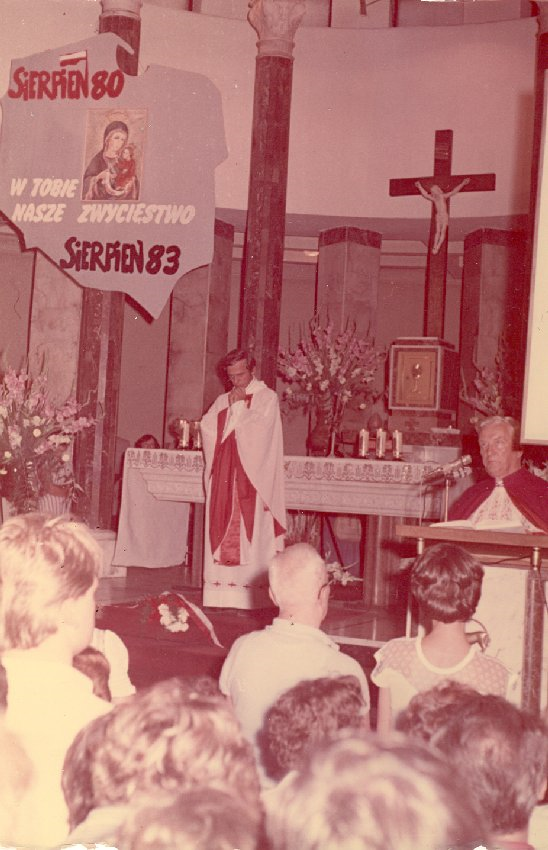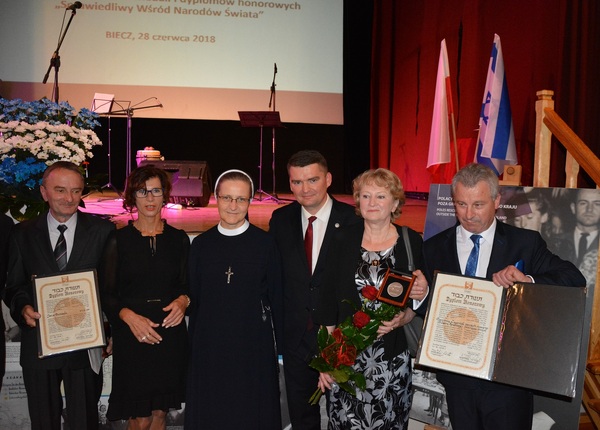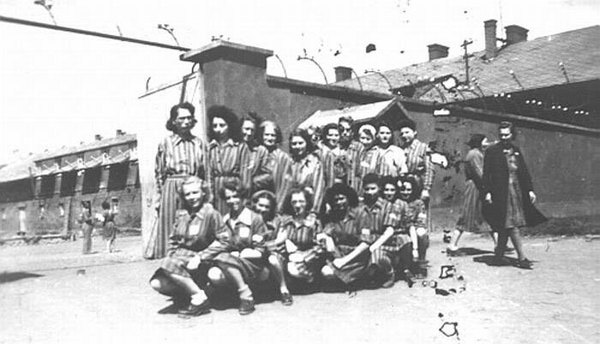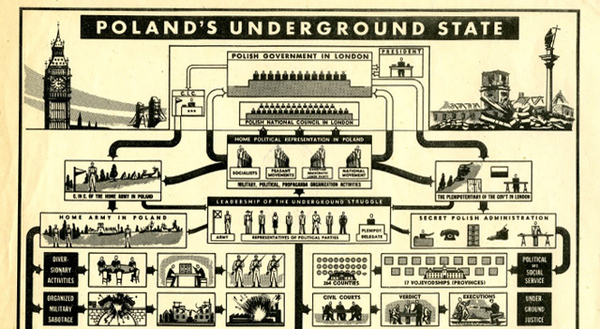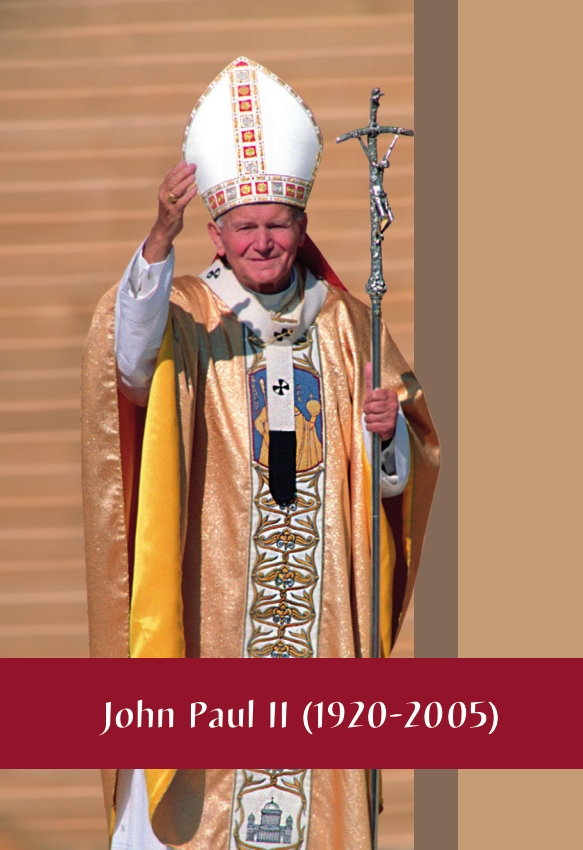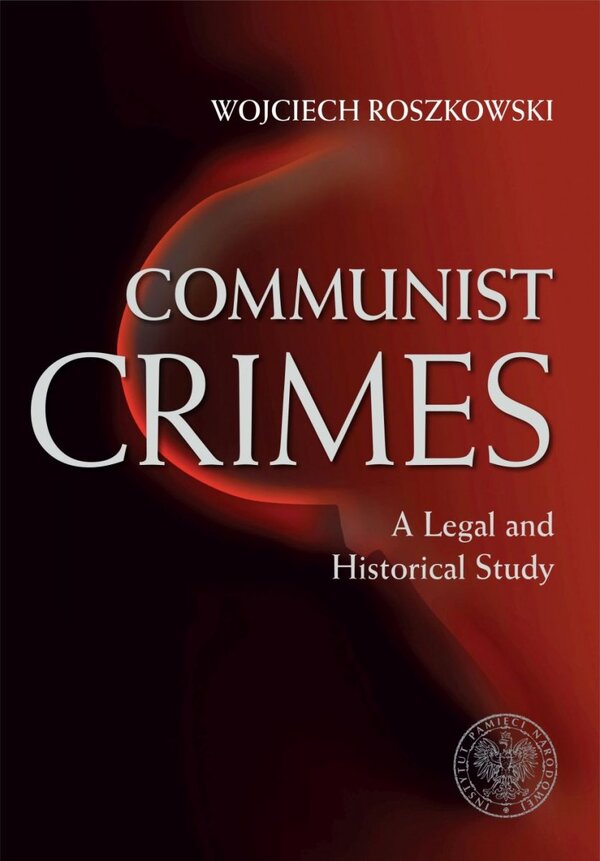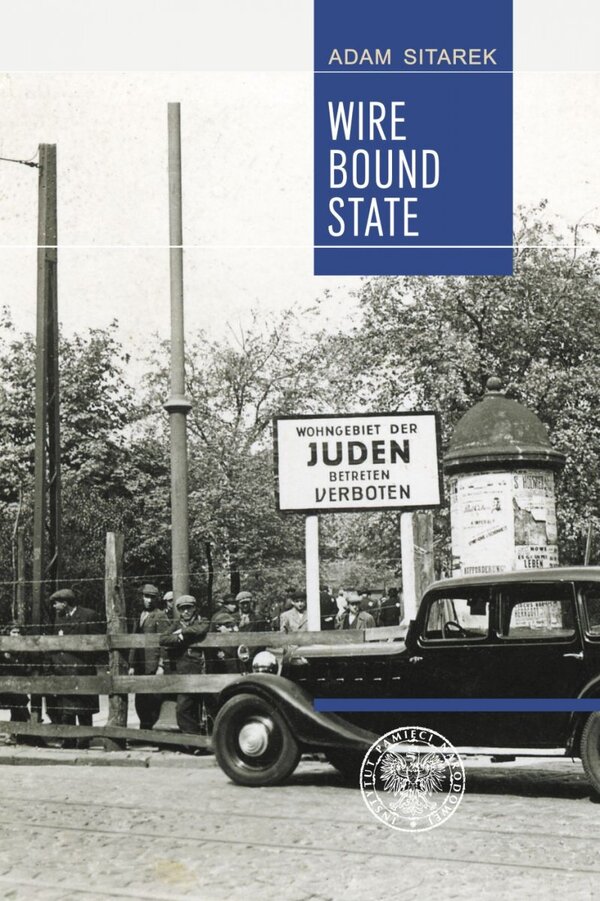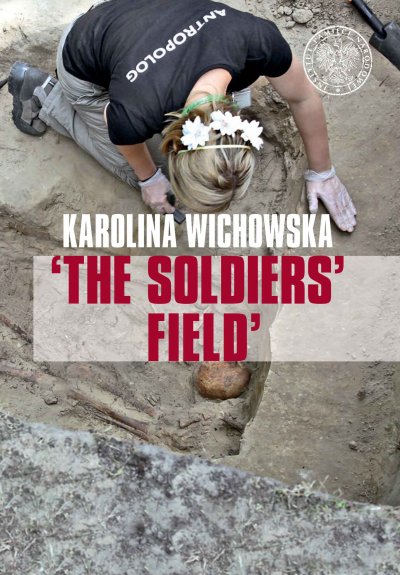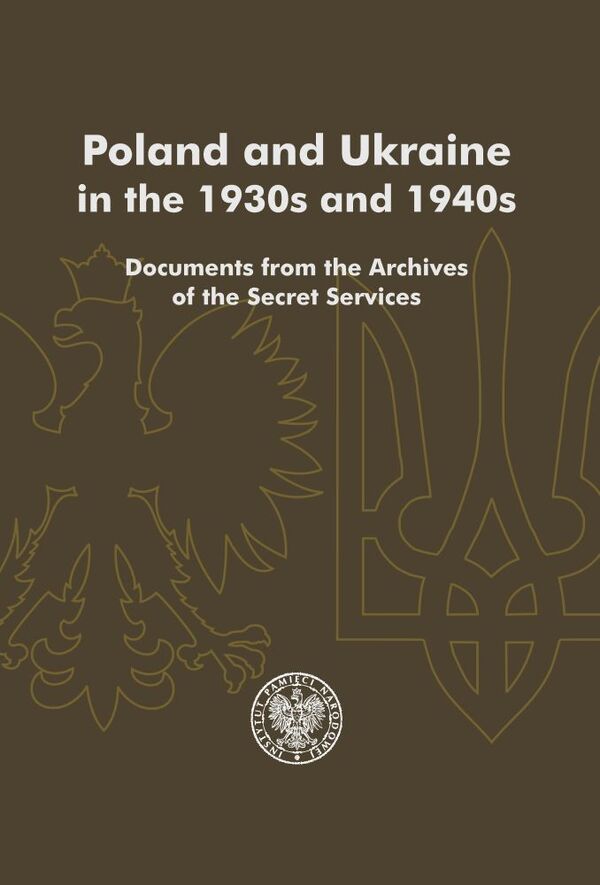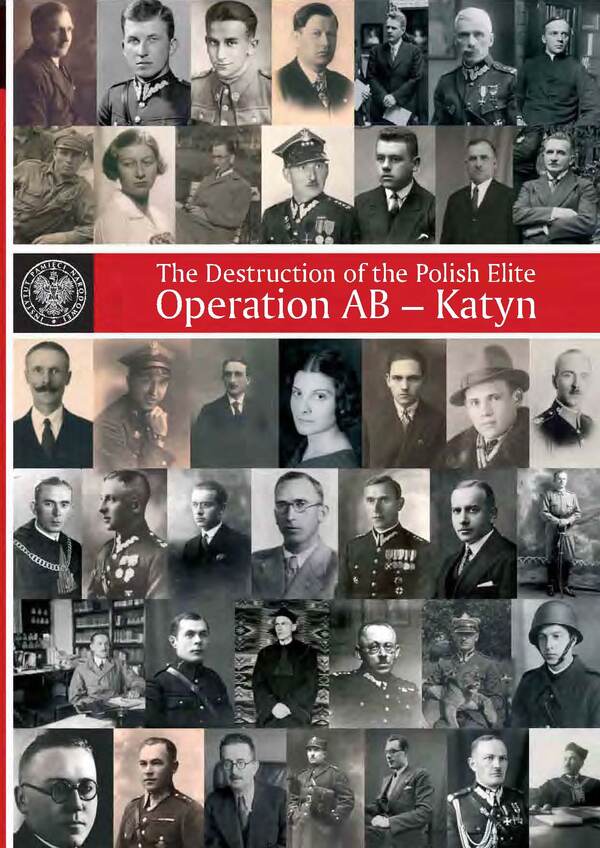Audio/Video
We’re about to turn several Report pages, see the ghetto insurgents who fought against the odds, explain aspects of the German-perpetrated murder of Jews in occupied Warsaw, and look the Report protagonists, both perpetrators and victims, in the eyes.
Audio/Video
Tadeusz Nowak ran a Home Army unit responsible for smuggling stolen ammo out of the German HASAG munitions plant. What did Poles and Jews do there? How did Nowak aid the Jewish workforce? What did his execution look like?
A story interrupted. Fate of the Kraków Jews during the World War II
”A story interrupted” is a story about Krakow long gone and the Jewish community, almost entirely murdered by the German occupier.
Audio/Video
Sara Diller survived the war thanks to Anna Bogdanowicz, who was killed in Auschwitz by the Germans. What did the life of Jews hiding in occupied Poland look like? When Anna met Sara? Why Anna didn’t hide Sara in her home?
Audio/Video
How did Anna Niepsuj and her family help the Jewish Kurzów family? Who witnessed the German crime in Klikowa? What happened to the family of the murdered Anna Niepsuj?
Opening match. The first World Cup appearance of the Polish national
On June 5, 1938, the Polish national football team had its debut at the World Cup in France. Their rival was the mighty Brazil and around 25 thousand spectators watched their clash at Stade de La Meinau, in Strasbourg.
Audio/Video
How did the life of Jews hiding in villages and small towns in occupied Poland look like? Who helped them and how? How Maria tried to save the lives of 13 defenseless Jews? What was the hiding spot where Maria's family sheltered Jews?
Audio/Video
Why can’t communist symbols be a part of Polish public space? Why is it important to erase all names and symbols referring to people, organizations, events and dates from the communist era from Polish towns and cities? What is the IPN doing in this respect? Watch the spot and find out!
Audio/Video
How was it possible to hide 200 Jews in one apartment in German-occupied Poland? Who supported Zofia Klemens and how? What did Szmuel Ron, who was saved by her, write to Zofia Klemens many years after the war?
Audio/Video
How Wincenty i Łucja tried to save the lives of defenseless Jews? Where was the hiding place? Where the family hid the Jews? Why German officers began a raid on the Baranek farm on 15 March 1943? To what do we owe the fact that we can recreate the story of the murder of the Baranek family?
Audio/Video
Why is the use of the term “Polish camps” unjustified and painful for the Polish Nation? Are Germans rewriting history? In this video you will find the answer to this question.
Audio/Video
How Feliks and Romualda tried to save the lives of defenseless Jews? Who found shelter in the Ciesielski apartment? Who did Romualda help when she was in Auschwitz? What was the fate of the heroic couple from Krakow?
Audio/Video
How Franciszek Andrzejczyk and Stanisława Andrzejczykowa tried to save the lives of defenseless Jews? How did the family manage to provide food for all? What happened to the family of Franciszek Andrzejczyk when all their belongings had gone into the hands of the authorities in the German occupation zone? Poles rescuing Jews – Not just the Ulmas, Episode 6.
Gestapo headquarters in Berlin
When the social nationalists came to power in January, 1933, the Gestapo was not created overnight. The establishing of the political police responsible for eradicating the enemies of the state was a long process.
Gestapo. The Third Reich’s political police
How is it possible that the Secret State Police (Geheime Staatspolizei – Gestapo), despite a relatively low number of officers (it reached its peak number of 31 thousand officers in 1944), managed to efficiently protect the Third Reich’s totalitarian regime in the occupied territories?
Audio/Video
How Władysława Krysiewicz and Stanisław Krysiewicz tried to save the lives of defenseless Jews? Why the marriage was separated? Did the Krysiewicz children have a chance to survive? The story is presented by Sebastian Piątkowski, PhD.
Audio/Video
What organization did Emilia Dembska belong to? How did she try to save the lives of her Jewish friends? What do we know about the further fate of the Survivors?
Audio/Video
How did the life of Jews hiding in villages and small towns in occupied Poland look like? Who helped them and how? Why the under-bed bunker was a chance at life? How was the fate of the Survivors and the family of the Righteous Among the Nations unfolding?
Audio/Video
How did the life of Jews hiding in villages and small towns in occupied Poland look like? Who helped them and how? Why did the hiding people escape and the hosts were killed?
Audio/Video
How did the life of the Gądek, Kucharski, Książek and Nowak Families look while the German occupation in Poland? Who provided assistance to the fleeing Jews and how? Why red beads in the title of the film?
The Uprising’s photographer. Eugeniusz Lokajski
How to describe the Warsaw Uprising? Not many people who remember these events are still alive today. There aren’t even that many places which resemble the capital from 1944. All that remains are the photographs, which are the testimony of these days.
How Antony Blinken’s grandfather died
US Secretary of State Antony Blinken is the adopted son of a Polish-American man from Białystok, Samuel Pisar — a lawyer, author, politician and adviser to American presidents. Samuel’s father was Dawid Pisar, whose family was one of the wealthiest in pre-war Białystok.
The Indian trail of hope
The evacuation with the Polish Army in 1942 was a great opportunity for the Polish civilians to flee the Soviet hell. But it wasn’t the final chapter in their fight for survival. Exhausted and malnourished, the bodies of the escapees, especially the youngest ones, required long recuperation. One of the places where Poles could find much needed rest was India.
Polish refugees in “black” Africa
The Second World War caused huge migration of people. Millions fled their homes in fear of repressions, and millions were the victims of forced deportations. Among those masses, Poles were one of the biggest groups. They found refuge on all continents of the world, including Africa.
„Stan the Man.” A baseball player with Poland in his heart
Although today the Polish Falcons’ Alliance of America is mainly associated with patriotic activities and initiatives for the military, we need to remember its engagement in promoting physical exercise in the Polish diaspora was of great importance as well.
Crossed out Polishness. The fate of Irena Berger
Irena Berger was only 23 years old when the war broke out. In 1940, she passed her nurse exam. Due to her grandparents’ religion, she was deemed Jewish by the Germans; even though she declared herself to be Polish.
The Lost House
My grandmother from my mother’s side married well. My grandfather was a hard-working, successful trader. He owned several flats and offices and sold luxurious furniture and “colonial products”, wine and deli, in several of his showrooms. During the Warsaw Uprising, my grandparents lost all their properties and assets. Only several items miraculously remained from that rather substantial wealth, considering the times, saved by my grandmother.
The Ulma Family: beatified Poles from Markowa
In the Podkarpacie province of Poland, near Łańcut, there lies the village of Markowa. In the Second World War, just like in many other villages in the country, the people had to face the brutal reality of the German occupation. In 1942, eight Jews were hiding in the Ulma family home. The Ulmas had to take care of six children at the time.
Audio/Video
Three large screens allow us to immerse into the routes traveled by Polish soldiers and their families by land, water and air during World War II. We follow their path on the interactive globe, which is the heart of the exhibition.
D-Day
On June 6, 1944, the Allies began the biggest landing of the Second World War - the landing in Normandy. It was part of the Operation Overlord, aimed at opening up a second front in Europe, and Polish soldiers took part in it.
Audio/Video
Who were Jozef and Wiktoria Ulma? See unique photographs of the daily life of the Ulma family of Markowa. It was a life that was brutally terminated by a massacre organized by German gendarmes. Many of these photographs were taken by Jozef Ulma himself, who documented the life of his family and neighbors.
Audio/Video
Can the Ulma family grab the attention of the people who follow the Kardashians? Will Cpt. Pilecki, volunteer to Auschwitz, ever beat Cpt. Miller, rescuer of Pvt. Ryan? How do we teach history to the young people, often preoccupied with easy internet entertainment? Which social media work best as teaching channels?
Not Only About the Ulmas. Assistance Offered on Polish Territory to Jewish People During the German Occupation 1939–1945
Polish people trying to save Jews from the Holocaust, in both an organised manner and individually, fully deserve to be recognised as a phenomenon. This is a part of the legacy of past generations that we Poles are proud of.
Hospitals in the Uprising
More than 120 hospitals functioned during the Warsaw Uprising, including in the restaurant „Under the Crooked Streetlamp”, on the Podwale 25 Street, and in the tenement house “The Black Swan”, on Podwale 46 Street.
Upper Silesia under the Allies’ control
Since February, 1920, to July, 1922, the Upper Silesia plebiscite territory was not in the hands of the German Regierungsbezirk Oppeln nor the Upper Silesian province.
Janina Lewandowska, the only woman murdered in Katyń
Among the Polish officers murdered in Katyń in the spring of 1940 there was only a single woman — pilot officer Janina Lewandowska.
Audio/Video
‘Over Volhyn’ a poem by Stanisława Wiatr-Partyka, interpreted by Samantha Bogusz, a resident of Melbourne. 11 July marks the National Day of Remembrance to honour the Polish victims murdered in Volhynia and Eastern Galicia by Ukrainian nationalists, commemorating the so-called Bloody Sunday of 11 July 1943.
Goodfella. Robert De Niro pays tribute to the participants of the Poznań June protests of 1956
He is a two-times Oscar winner, a movie director, producer, but first and foremost one of the greatest actors of his generation. There is no need for further introductions of Robert De Niro. However, not many people know about his deep respect for the difficult, but heroic pages of Polish history — a feeling which the actor decided to emphasise with a moving gesture.
A slip-up in Beirut. Polish weapons for ASALA
During the times of the Cold War, weapons produced in the Polish People’s Republic were often exported to many countries of the so-called Third World. They paid for them in foreign currency papers, which was much more profitable than contracts made with countries of the Comecon (Council for Mutual Economic Assistance), which were realised with transfer rubles. Among the most significant buyers were Libya, Iraq, Syria, India and the Palestine Liberation Organisation. It is worth noting, that the aforementioned countries, excluding India, were all supporting international terrorism.
How did the “amnesty” of Polish citizens from August, 1941 occur?
On July 30, 1941, in London, a Polish-Soviet pact was made against the Germans (commonly referred to as the Sikorski-Mayski pact from the names of its signatories).
The path of American volunteers to serve in the Polish Army
One of the most popular historical myths of the Polish-Bolshevik war is that Poles, fighting for survival, could only count on themselves. It is impossible to defend this claim when it comes to the Polish Air Force.
Audio/Video
Watch the promotional spot for the Polish Falcons of America album! Explore the contributions of the Polish Falcons to Poland’s independence! See how many world-class athletes belonged to this organization!
Audio/Video
A documentary which tells the story of the incredible operation to rescue Jewish children during World War II carried out by nuns from the Congregation of Franciscan Sisters of the Family of Mary. The operation's initiator and primary coordinator was the then-Provincial for the Warsaw Province, Mother Matylda Getter – the eponymous Matusia
How the eruption of Mount Vesuvius destroyed American bombers
Vesuvius exploded in the middle of March 1944. It was most active between March 18th and March 29th. On the 23rd, the volcanic fallout destroyed 88 (or 75) bombers standing at the bottom of the mountain at the military airbase near Terzigno. They were B-25 bombers from the 340th Bomb Group of the 12th US Air Force.
March 1: who killed whom?
National Day of Remembrance of the “Cursed Soldiers” is a Polish national holiday in which we commemorate a collective hero. Nevertheless, on March 1, we also honour individual heroes. It is so because this holiday is celebrated on the day connected to a special event. To be precise, it is connected with a certain communist crime.
Patriotic-religious demonstrations in 1861. A prelude to the January Uprising.
The January Uprising has its apologists and critics. Józef Piłsudski glorified the insurgent movement and based the shaping of a young, Polish soldier on the uprising’s spiritual impact. He also criticised it — not to condemn it, but to learn from its mistakes, taking inspiration from what made it beautiful and strong.
Pope Benedict XVI in Auschwitz-Birkenau
In the last day of his pilgrimage to Poland, on May 28th, 2006, pope Benedict XVI visited the former Nazi German concentration camp Auschwitz-Birkenau. In his speech in front of the International Monument to the Victims of the Auschwitz-Birkenau Camp, he said: “I am here as the successor of John Paul II and as a son of the German nation.”
“Margaret - beware of the red spider!” Margaret Thatcher’s visit in Poland
Margaret Thatcher, dubbed the “Iron Lady” due to her firm policies, visited Poland between November 2-4, 1988, during the special time of preparations for the Round Table talks. The visit did not bring the results expected by the communist authorities of the Polish People’s Republic, but instead gave hope to the Polish opposition of gaining the West’s support.
Maciej Nowicki (1910-1950) - pioneer of world architecture. Road from Poland to the United Nations
Due to political censorship, in communist-ruled Poland, Nowicki’s name was suppressed for a long time. Press releases relating to Maciej Nowicki appeared in 1956 after de-Stalinisation and “the Thaw”.
Duty, not treason
The Soviet propaganda branded him “a traitor”, the Soviet martial court of the Polish People’s Republic sentenced him to die; today, in a PR style, some try to sell him as “an atomic spy”; prof. Zbigniew Brzeziński, one of the first to learn of David’s fight against Goliath, described him as “the first Polish officer in NATO”. On November 7, 1981, the CIA evacuated Colonel Ryszard Kukliński from the Polish People’s Republic.
Patriots. Soldiers. Jews. Exhibition catalog
Polish Jews participated in the struggle for Poland’s independence and borders. When the Polish state soon emerged from captivity, they enlisted en masse in the Polish Army.
Warsaw event of the communists of the world
The Cold War and the arms race brought a new dimension of war to the world. Today we know it as the “hybrid war”. From the very beginning, one of the elements of this new type of conflict was the information war. The Soviet Union perfected and developed this method of striking, ruthlessly using every opportunity to weaken its opponents.
The last year of peace
The taking of Austria by the Third Reich did not raise any major alarms among the leadership of the Second Republic of Poland, mainly because the blade of the German expansion seemed to be going towards the Balkan Peninsula. This assessment, however, quickly changed with the fate of Czechoslovakia and the new, post-Munich stage of Polish-German relations.
Audio/Video
What happened on 4 July 1946 at 7 Planty street in Kielce? Anti-Jewish incidents from the point of view of scholars from Western countries will be the subject of the conference with the participation of specialists in the field
Audio/Video
We handle approximately 100 history distortion and defamation cases every year. Whenever one of them catches our attention, we turn to our Historical Research Office for backup on facts, and consult the legal department.
The Republic of Poland in the face of the Second World War
The Polish state, getting back on its feet after the hardships of the Polish-Bolshevik war in 1919-1920, strived to stabilise relations with its neighbours. The starting point for further contacts with the Soviet Union were the agreements of the Treaty of Riga, which ended the aforementioned conflict in 1921.
The tragedy of the crew of the Polish ship Joseph Conrad in Haiphong
On December 18, 1972, the American military operation “Linebacker II” began. Its main goal was to force the Democratic Republic of Vietnam to return to the negotiations broken just days prior.
Mother Matylda Getter – Heroes of an Independent Poland
She is deservedly among the outstanding representatives of the Polish nation. During World War II she saved over 750 Jews, more than 500 of which were children.
Audio/Video
The IPN Publishing House has already produced over 2,800 publications in 16 languages and is increasingly drawing on the latest technological possibilities by publishing books in electronic form
Mick Jagger on the index
Mick Jagger has been a pop-culture icon for decades. When The Rolling Stones came to Poland, they were at the peak of their career, and their image of scandalous rock stars, carefully cultivated by their resourceful manager, shocked and intrigued. However, it was a series of scandals, ending with two trials for drug possession, which became the reason behind an absurd decision of the communist bureaucracy.
Audio/Video
The opening of the renovated Polish cemetery in Rusape, Zimbabwe. A dozen or so of the over 700 inhabitants of the refugee settlement which functioned in the years 1943-1946 in Southern Rhodesia are buried there. A total of about 20,000 people were sent to various settlements in Eastern and Southern Africa. In some cases their "trails of hope" from the "inhuman land," ended on the way to their homeland due to exhaustion or disease.
Audio/Video
Polish soldiers led by General Władysław Anders made a huge contribution to the Allied victory over Germany during World War II. In Poland, General Anders is also remembered as the one who saved thousands of people and their families from Russian captivity. For many of them, the road led through Africa.
Stalin’s victory in Tehran. Poland’s fate on the conscience of Roosevelt and Churchill
Between November 28 and December 1, 1943, Joseph Stalin, Winston Churchill and Franklin Delano Roosevelt debated in Tehran. It was a crucial moment of the Second World War. The most important decisions regarding the final stage of the war and the postwar fate of Europe, including Poland, were made there.
An enemy of Germany, a friend to Poles
It can be said, without exaggeration, that Ferdynand Foch played a crucial role in the Allies’ victory on the western front of the First World War.
Ronald Reagan: from actor to President
Ronald Reagan was a figure of several faces and many opposites. He was the son of a Catholic and a Protestant, a Hollywood actor with his own star in the walk of fame and a President of the United States of America, a joker and a man on a mission, an old President with health issues and a determined warrior who wanted to defeat the Soviet “evil empire”.
The Évian Conference in July 1938. An attempt to help Jewish refugees from Germany and Austria?
Although we usually associate the issue of refugees and forced migration with the state of war, Europe in the interwar period also experienced this crisis from other sources. The anti-Jewish policies of Germany from Hitler’s time forced more and more groups of people to leave their country and seek refuge abroad.
„Polish-Jewish Studies”, volume 2/2021
In the second issue of Polish-Jewish Studies we are pleased to present further findings in the field of Polish-Jewish relations and research on Jewish issues.
Audio/Video
„Cyphers Game”: the IPN’s gaming project [trailer]. Crack Bolshevik codes, set up radio communication and neutralize the terrifying armored trains. Play on your PC, mobile device or VR goggles, and become the hero of Polish signals intelligence. Jump into the very events that determined the outcome of the military confict a century ago!
Solidarity’s Poland in the eyes of American diplomats
Dr Rafał Leśkiewicz, the editor-in-chief of przystanekhistoria.pl, interviews assistant professor Patryk Pleskot, the author of the book American-style carnival. US diplomatic facilities in the Polish People’s Republic on the events between August 1980 and December 1981 (original title: Karnawał po amerykańsku. Placówki dyplomatyczne USA w PRL wobec polskich wydarzeń od sierpnia 1980 do grudnia 1981 r.).
Audio/Video
THE IPN’S MISSION: Remembrance is key. People these days rush forward so much that they lock history up and throw away the key. This is where the IPN comes into the picture: we pick up that key because we believe that history is important, and remembrance is the key to unlock it. Get to know our activity.
Audio/Video
In WWII, we fought on all fronts, protecting dignity and freedom, side by side with other enslaved nations. We’re reminding the world the heroic deeds of our airmen in the Battle of England, as well as forgotten Polish soldiers from Tobruk, Narvik, Monte Cassino and many other battles. See this exhibit and find out more!
Trails of Hope. The Odyssey of Freedom
Soldiers of the Polish Armed Forces, an army of nearly 200,000 at the peak time of the war, also played an important role on many other fronts: in Narvik, the Battle of Britain, Tobruk, and Arnhem. Brothers in arms with the British, Americans, and other nations, they fought for freedom, dignity, and peace not only for themselves but also for the others. Their contribution to the victory over the Nazi Reich is incontestable.
Audio/Video
Statement by the President of the IPN’s on decommunization of the public space
Soviet aggression on Poland from September 17th 1939
In consequence of the Molotov-Ribbentrop pact between the Third Reich and the Soviet Union, on September 17th 1939 the Red Army crossed the borders of Poland thus beginning the occupation of the eastern territories of the Second Republic of Poland, lasting almost two years.
One hundred days of frozen hell
They appeared out of nowhere in snow uniforms, attacked and disappeared – the Finnish volunteer troops. The Soviet soldiers feared them greatly. In Finland, the heroic defence of 1939 came to be known as Talvisota – yet an ordinary Russian knows nothing about it.
The beginning of a beautiful friendship
In 1989, when the transformation began in Poland, the CIA initiated its cooperation with Polish intelligence. The resolutions made there and then defined the shape of Polish special services and their geopolitical alliances for years.
Deterrence through publicising? The historical context of the American diplomacy towards Russia in 2022
“USA: the Russian invasion of Ukraine is imminent”. Such headlines appeared in the middle of February 2022 across world media and social media. Interestingly, Washington had made an almost identical announcement more than 40 years ago. Then, the country about to be invaded was not Ukraine but “people’s” Poland.
Aggression of 17 September 1939 ‒ the historical lie of the current policy of the Kremlin
On 17 September 1939, Stalin fulfilled his obligations to Hitler set forth in the secret protocol to the Molotov-Ribbentrop Pact. The aggression of the Red Army allowed the German Reich to accelerate its conquest of Poland. 17 September 1939 has become a symbol of the criminal cooperation between Hitler and Stalin against the free nations of Europe.
Under the Red boot
It wasn’t an “ordinary” attack, because even assuming that every aggression is unique on its own, it’s hard not to notice some unprecedented aspects of the soviet invasion of Poland on September 17th, 1939. For the first time ever, one country invaded another claiming that the invaded one… didn’t exist.
Martial law and diplomacy of West Germany - a Déjà vu from December 1970?
While going through the reports of the Interior Ministry on the reactions of the embassies of NATO countries on what was happening in the Polish People’s Republic during and after December 13, 1981, one could come to a conclusion that the key word tying all these reports together was - “surprise”.
Audio/Video
Karol Nawrocki, Ph.D., the President of the Institute of National Remembrance: The 80th anniversary of the transformation of the Union of Armed Struggle into the Home Army
Audio/Video
TO SAVE FROM OBLIVION: The President of the IPN on International Holocaust Remembrance Day
A conquest called liberation
The sooner we realise that in the field of historical narration we’re still stuck in the position of post-totalitarian state and society, the sooner we may be able to rebuild the historical narrative from the perspective of regaining independence.
Argentinean finale of the epos of the soldiers of the 2nd Polish Corps
On a hot summer day in July, 1947, in the port of Genoa, there was a lot commotion. A crowd gathered next to the gangway to the motor ship Empire Halberd - young men of Slavic looks and their Italian wives…
Too costly intervention
Every anniversary of the introduction of martial law in Poland is followed by a discussion whether Poland between 1980-1981 was in danger of a military intervention by the forces of the Warsaw Pact. The Soviet Union had enough strength and resources to undertake such an operation. It did, however, prefer to avoid it.
From communist misdemeanor courts to special actions of the Security Service, or harassment of opposition activists in the 1980s
In the second half of the 1970s, authorities of the Polish People’s Republic put emphasis not on mass arrests, but rather on harassing opposition activists. It does not, however, mean that opposition activists were not sent to jail.
Audio/Video
The Light of Freedom - animated short film
The world is watching. Foreign reactions to the pacification of the “Wujek” mine
The death of innocent miners in the first days of the martial law in Poland could not have gone without notice of the West. The massacre in Katowice was even condemned by local communist parties.
Czechoslovakia in the face of the Polish-Bolshevik war in 1920 and the matter of the border with Poland
Polish-Czechoslovakian relations, following the 1919 aggression of the First Polish Republic at the Cieszyn Silesia, were quite complicated. In 1920, Prague’s stance on the Polish-Bolshevik war became another unfavourable circumstance.
Déat did not wish to die for Gdańsk
On the pages of the French l’Oeuvre daily, on May 4 1939, Marcel Déat wrote an article entitled Mourir pour Dantzig? (To die for Gdańsk?). This text became the symbol for the so-called appeasement policy and the lack of sympathy of a part of the French society towards the problematic alliance with Poland.
Audio/Video
„Conflict – stabilisation – assimilation? The consequences of migration in the life of the inhabitants of Lower Silesia after 1945. A comparative approach” (international scientific conference) - I panel
„About the greatness, wise leadership and extraordinary personality of our dear leader” or several thoughts about the political system of the Democratic People’s Republic of Korea
To understand the phenomenon of communism in its Korean form, one needs to previously get acquainted with the social and cultural reality in which this type of totalitarianism set its roots and from which it evolved.
Józef Haller – Heroes of an Independent Poland
In Poland, General Haller is the patron of numerous primary and secondary schools. In practically every town in Pomerania, there is a street named after him, along with busts and monuments.
“Solidarity” on hit lists
The Solidarity Union, from the beginning of its existence, caught the attention of the entire world. It quickly became the symbol of freedom, thus causing the introduction of martial law to be widely condemned.
The Pomeranian crime of 1939
According to Jochen Böhler, in 1939 approx. 30,000 people were murdered in the Gdańsk Pomerania region, 10,000 people were murdered in the Reichsgau Wartheland, 1,500 in the province of Silesia, and 1,000 – in Regierungsbezirk Zichenau.
Audio/Video
European Day of Remembrance for the Victims of Totalitarian Regimes: an address by the IPN's President Karol Nawrocki [English subtitles]
United Europe - the Poles’ dream
The idea of uniting Europe has a rich tradition and strong roots in Polish political thought. Beginning with the Christian traditions treating the space of Europe as Chris-tianitas, along with the development of reflection on politics and international rela-tions, new concepts of European unity appeared.
Spies or diplomats? Counterintelligence of the Polish People’s Republic against western embassies in Warsaw
One of the primary objectives of the special services of the Polish People’s Republic was surveilling the intelligence activity of diplomatic facilities. Without doubt, among the embassies of most interest to the communist counterintelligence were the American, British, West German and French facilities.
The most beautiful Polish battle
The Warsaw Uprising to this day gathers a lot of emotions. Some claim that the August insurgency had no sense, was a national catastrophe, mistake (even madness) or that it was caused by irresponsible and self-proclaimed officers of the Home Army and the fight was doomed to fail.
Package initiative of the Polish Committee Aiding Refugees in Portugal for Jews in the General Government
During the Second World War, Portugal became a very important country to which, following the evacuation of the Polish government-in-exile in France in 1940, many Polish refugees, including several leaders of the Polish state, escaped.
Władysław Günter-Schwarzburg and the Jewish refugees in Greece during the Second World War - an episode from the activity of the Polish Embassy in Athens
When the Second World War broke out Greece announced its neutrality, but in October 1940 Italian dictator Mussolini demanded from general Ioannis Metaxas, who introduced military dictatorship in the country, to allow the Italian army to enter Greece.
Audio/Video
Polish prisoners of KL Sachsenhausen. Commemoration of General Bolesław Roja–scientific conference
Poznan protests of June 1956 in the documents of the CIA
The spectacular social protest which broke out on June 28th 1956 in Poznan had no precedence in the post-war history of Poland. This unique picture was especially extraordinary due to: its scale, grassroot character, anti-system message and clearly brutal response of the Communist authorities resulting in many casualties.
Audio/Video
MARIAN REJEWSKI (1905 - 1980) – Giants of the Polish Science episode 12
Audio/Video
JERZY RUDLICKI (1893 - 1977) – Giants of the Polish Science episode 11
Audio/Video
RUDOLF WEIGL (1883 - 1957) – Giants of the Polish Science episode 10
Audio/Video
STANISŁAW ULAM (1909 - 1984) – Giants of the Polish Science episode 9
Audio/Video
JERZY DĄBROWSKI (1899 – 1967) – Giants of the Polish Science episode 8
Audio/Video
STANISŁAW ROGALSKI (1904 - 1976) – Giants of the Polish Science episode 7
Audio/Video
STEFAN BRYŁA (1886-1943) – Giants of Polish Science episode 6
Audio/Video
ALEKSANDER WASIUTYŃSKI (1859 - 1944) – Giants of Polish Science episode 5
Audio/Video
TADEUSZ WENDA (1863 - 1948) – Giants of Polish Science episode 4
Audio/Video
TADEUSZ SENDZIMIR (1894-1989) – Giants of Polish Science episode 3
Audio/Video
JAN CZOCHRALSKI (1885-1953) – Giants of Polish Science episode 2
Audio/Video
IGNACY MOŚCICKI (1867-1946) – Giants of Polish Science episode 1
Strike for a “Chopin” piano
In the years of the Solidarity’s revolution of 1980-1981 in Poland a wide social movement demanding crucial changes in the country was created. It consisted of blue and white collar workers, farmers, students…
War crimes committed by the German Wehrmacht during the invasion of Poland in 1939
The German invasion of Poland was an extremely brutal campaign with war crimes being committed on a daily basis. Wehrmacht – the armed forces of Nazi Germany – on countless occasions violated international conventions and showed total contempt for its foe.
“Enemy of the Polish People’s Republic” from Argentina
Florian Czarnyszewicz was a thorn in the Communists’ side for several reasons. First and foremost, he dared to put on paper the memory of the tragic fate of Poles from near Berezina river, who fought between 1911-1920 for the return of their lands to the independent Republic of Poland.
Did the Polish state seize to exist after the German invasion
Only the German Reich, the USSR and the Slovakian Republic agreed in 1939 that as a result of their aggression the Republic of Poland was conquered, meaning its sovereignty was taken away following an armed invasion and the total seizing of control over the country.
Rather die than betray the cause. The Gestapo Detention Center at Aleja Szucha 25
During the occupation, even the words “Aleja Szucha” inspired terror among the citizens of Warsaw, as they were associated with the suffering of victims and the cruelty of Gestapo tormen-tors.
Audio/Video
"Polish-Jewish Studies" – a debate on the IPN’s latest academic journal
Audio/Video
„I am proud of my Mother… ” – the story of Helena Majewska
Audio/Video
The National Day of Remembrance of Poles Rescuing Jews under German Occupation – press conference
Bitter peace. The 1921 Treaty of Riga.
In November 1918, when Poland regained independence after 123 years of slavery, it had five difficult years ahead of it, struggling to recover the lost borders and to get them internationally recognised. The Polish-Bolshevik war of 1919-1920, which officially ended with the signing of the peace treaty in Riga on March 18th 1921, was of greatest importance and consequence for the fate of the Republic of Poland and Europe.
Audio/Video
Exposing Russian manipulation – "POWs 1920" – the IPN’s press conference
Auschwitz? Never heard of it… The reasons behind the poor knowledge of German youth on concentration camps
To this day, the Germans and Austrians are not certain how to deal with the grim legacy of concentration camps. The trivialisation of memory adds to the lack of knowledge about the camps among the younger generations.
Audio/Video
Polish-Jewish Studies: the latest periodical of Institute of National Remembrance
Fighting Poland Anchor
On March 20th 1942, residents of Warsaw passing the Lardelli’s bakery saw a stylised symbol of an anchor painted on a post. It was the first time it appeared on the streets of the capital, to then forever become the symbol of Fighting Poland.
Audio/Video
Giants of Polish Science: IPN on the contribution of Polish scientists to civilizational progress
Pre-war cafes
During the inter-war period, Polish cafes were one of the most vibrant, often visited places. During spring-time, when the most crowded streets were filled with masses of pedestrians, cafe gardens appeared along the pavements, serving their clients with coffee, cakes and other sweets.
Not only Luxtorpeda
In the 1930s, railway tourism in Poland began rapidly developing. The young, reborn state was able to pride itself on trains intended for the most demanding passengers. And it was not only the famous Luxtorpeda.
Forgotten Yalta
The conference of leaders of the anti-German coalition powers at Crimea, in February 1945, determined the post-war shape of Europe. Stalin, Churchill and Roosevelt decided on a unified approach towards Germany, set the post-war borders of various countries and divided the areas of influence among themselves.
„Polish-Jewish Studies”, volume 1/2020
This bilingual (Polish-English) annual journal is dedicated to the history of the Jewish community in 20th-century Poland, preserving the memory of Polish Jews, and mutual and complex Polish-Jewish relations. As intended by the editors, the periodical serves as a forum for the exchange of current findings in the field of Jewish studies by researchers from various academic centers.
Dmytro Klyachkivsky "Klym Savur" - the main perpetrator of the Volhynian genocide
To this day, historians have been arguing about the causes of the Volhynian massacre committed by Ukrainian nationalists in 1943. No written orders have been preserved, however all the evidence and circumstantial evidence indicate that the direct responsibility for unleashing a wave of murders on Polish civilians lies with the then UPA commander in Volhynia – Dmytro Klyachkivsky aka "Klym Savur".
Bravery, hope, faith and honour. Report from Budapest fighting for freedom
The Hungarian revolution of 1956 is well known to Poland, while some of the aspects of this dramatic moment in Hungary’s history and Polish-Hungarian unity in these days have been described in the Polish literature.
Audio/Video
The Battle of Warsaw 1920. 18th the landmark battle in the history of the world – educational film
“Poison, dump, filth, report on a dead man”
In my Ugly Black Bird (1994, published by Marabut-Cis) I demystified the occupant memoir of Jerzy Kosiński – the basis for his literary image, as well as his alleged autobiographical The Painted Bird, considered by many a shocking document of the Holocaust.
“Poland’s participation in the partition of Czechoslovakia” – the false page of an anti-Polish story
Even prior to the Second World War Poles and other European nations were to be taught the false story of the “Polish participation” in the partition of Czechoslovakia. It is high time for readers to learn the truth about that event.
The Battle of Warsaw 1920. The Defeat of the Empire of Evil
The Battle of Warsaw in 1920 was not only a culminating moment of the Polish-Bolshevik war but also one of the decisive events in the history of Europe and the world. The British diplomat Lord Edgar Vincent D’Abernon, an eyewitness to those events, claimed in his book The Eighteenth Decisive Battle of the World that the Poles had saved the Western civilization from the fanatical tyranny of the Soviet. Unfortunately, the European nations are not aware of this historical fact.
Audio/Video
Polish national symbols - educational film [English subtitles]
Eradicate or denationalise? The German and Soviet program of fighting against the Polish nation
The characteristic of the German and Soviet crimes on Poles includes terms regarding the goals, methods and scale of realisation of the anti-Polish policies during the Second World War.
Hungarians towards the German aggression on Poland
Despite the pressure of Berlin the Kingdom of Hungary did not contribute to the German aggression on Poland in September 1939, but rather later secretly supported the evacuation of Polish soldiers to France.
Poland, know how to be grateful! Saint John Paul II about his Fatherland
When John Paul II, on August 19th 2002, left his country, he said: My beloved Fatherland, Poland, […] God exalts you and marks you as special, but know how to be grateful! The pope stressed once more, how important patriotism was for him.
Nazi crimes on people with disabilities in the light of international law - a brief review
Ethnic cleansing committed by the Nazis during World War II focused mainly on the Jewish community was not the only course of eugenic thought. People who had been harmed by birth - the disabled and mentally ill, were not spared the torturers wearing German uniforms.
Royal Air Force in September ‘39
Did the British and French air forces limit their combat flights to dropping leaflets over the cities of the Third Reich in September 1939? Such view was formulated in science and popular science articles.
Slovak participation in the war. Occupation of Polish mountain regions
As in conquered Warsaw the symbolic beginning of the occupation was the German victory parade, near the Tatry mountains it was the victory parade organised by the Slovak army in Zakopane.
For freedom and independence
On September 2nd 1945 the “Freedom and Independence” organisation was founded – the most important organisation of post-war underground resistance.
For freedom and independence
On September 2nd 1945 the “Freedom and Independence” organisation was founded – the most important organisation of post-war underground resistance.
Audio/Video
Srebrni on the Routes to Battle of Warsaw 1920 (part 2) – an animated film on the basis of a comic book
Polish prisoners of war in Soviet captivity
The Republic of Poland, reviving in the wake of the wars of 1918 – 1921 was not a party to the Hague Convention of 1907 regulating the issues of POWs, however it respected its provisions.
Soviet prisoners of war interned in Poland in the years 1919 – 1921
As a result of the defeat of the central countries, prisoners of war, interned persons and those forcibly taken to labour camps – citizens of the former Russian empire – began returning to their homelands (Russia, Ukraine, Poland, the Baltic nations).
Audio/Video
Srebrni on the Routes to Battle of Warsaw 1920 (part 1) – an animated film on the basis of a comic book
Audio/Video
Roger Moorhouse: The Battle of Warsaw and the Export of Revolution
Battle of Warsaw 1920
The Battle of Warsaw was one of the most important moments of the Polish-Bolshevik war, one of the most decisive event in the history of Poland, Europe and the entire world. However, excluding Poland, this fact is almost completely unknown to the citizens of European countries.
Audio/Video
Battle of Warsaw 1920 – an animated film on the basis of a comic book
Audio/Video
Roger Moorhouse: The Significance of the Battle of Warsaw 1920
Augustów Round-up – a crime without expiration
The result of the Soviet operation from July 1945, described today as the Augustów Round-up, was the biggest crime committed on Poles after the Second World War. At least 600 Poles were murdered in an unknown location, and the perpetrators remain unpunished to this day.
A ground-breaking visit, or a visit of ground-breaking times?
On the late evening of July 9th 1989, Air Force One with president George H. W. Bush and his wife Barbara on board landed at the Okęcie airport in Warsaw. An official visit of the fourth American president on Polish lands began, lasting two days.
Muammar Gaddafi’s Libya – a forgotten ally of the Polish People’s Republic
The Libyan dictator took power in 1969 and only a few years later began close cooperation with the eastern bloc. He sold oil to the Soviet Union and in turn bought huge amount of weapons.
North Korea by the end of the 1980s in the reports of the military intelligence of the Polish People’s Republic
For many years, every few weeks or months, the eyes of the entire world turn to one of the last strongholds of contemporary totalitarianism – North Korea. The military aspirations of the unpredictable Kim Jong Un loom large on the leaders of the biggest modern powers of the world.
Cracow spring of 1989
The “round table” is one of the most important symbols of the Third Republic of Poland, for part of the society a dignified example of political dialogue which began the process of democratising Poland, for others a symbol of betrayal and conspiracy of groups hostile towards Poland. During the talks, a wave of youth protests came through Cracow, demonstrating against the “round table” talks and demanding power to be taken away from the communists.
They became numbers from 31 to 758
In the first months of German occupation, the repressions against the Polish population were much greater than against other national groups of pre-war Poland. This was due to a large-scale campaign of the German security apparatus directed against the Polish intelligentsia.
Daily Apocalypse. The first weeks in Auschwitz
“The only exit from here leads through the crematorium chimney” – this is what the first Polish prisoners of Auschwitz heard from the SS camp Deputy Commander Hauptsturmführer Karl Fritzsch in June 1940.
The Victims of Sonderaktion Krakau
Aktion gegen Universitäts-Professoren, commonly known as Sonderaktion Krakau, has left its mark on the history of Cracow and modern history in general, as an unprecedented attack on Polish academic circles.
Broszury popularnonaukowe IPN Szczecin
Ravensbrück. A story not to be forgotten. The Polish perspective
Germany entered the period of terror in 1933, when Adolf Hilter assumed power. Mass arrests of his political opponents began soon after. Those regarded as enemies of the German state and nation were sent to prisons or concentration camps.
The „Blind Max” Scandal
Menahem Bornstein, more commonly known as “Blind Max”, over the years built up a legend of a “Robin Hood of Łódź”, covering the actual, grim character of his infamous criminal activities in the pre-war city of Łódź.
June elections – the swan song of the Polish communism
In January 1947, the first post-war parliamentary elections were conducted in Poland. Although one of its participants was the Democratic Bloc – consisting of, among others, the Polish Workers’ Party – they were the absolute opposite of democracy.
The Fourteen Points Speech. A plan for the world, a sign of hope for Poland
President Wilson’s address to a joint session of the United States Congress included a peace program regarding the world war that had been going on for three years. It was an offer which was ground-breaking in many ways.
Army of Free Europe
Soldiers! A time of ruthless fight against the Communist regime is near. (…) The Army of Free Europe (AWE) has a noble task ahead of it – to liberate the Homeland from the Bolshevik slavery. The Bolsheviks have the help of the Polish hands from the Polish United Workers’ Party who gave death sentences for the greatest sons of the Homeland…
Poles against the Kaiser. Fighting of the White Legions at the Russian front between 1915-1917
The fighting of the Polish soldiers at the battlefields of the First World War alongside countries of the Entente are little known today. Not a lot of people realise, that even before the Blue Army of General Haller, counting a hundred thousand soldiers, was created, the First Polish Legion had marched to fight against the Germans in 1915.
Scythes on planes
The Kościuszko Squadron is the oldest Polish air unit and one of the oldest in the world. Over the course of its existence it bore various names and numbers.
Terror of the Red Army and NKVD in the Polish lands between 1944-1945
Victories of the Red Army ended the German occupation of Poland which brought millions of victims. However, the same Amy, which had the NKVD (People’s Commissariat for Internal Affairs) and SMERSH (military counterintelligence) in its structures, did not bring back the lost independence nor provided safety to the country’s citizens.
“Poles are not yet allowed to celebrate freedom”
On May 8th 1945, the world celebrated the end of the Second World War – an unimaginable hell started by the aggression of Germany and the Soviet Union on Poland. On the ruins of conquered Berlin, the Soviet soldiers hanged red flags with a scythe and hammer.
People, war and mathematics. The case of Bolshevik prisoners in the year 1920
The Ministry of Culture of the Russian Federation, on the eve of the 77th anniversary of the Katyń Massacre and the 7th anniversary of the crash of the presidential plane of Lech Kaczyński at Smoleńsk, conducted a provocative action. At the Katyń memorial place an exhibition was opened commemorating the Soviet POWs in Poland between 1919-1921.
Alpine artists from Gliwice
On the night from July 23rd to July 24th 1982, three men appeared on the roof of a residential block at the May Alley in Gliwice. They had safety belts, paints, brushes, a bucket, a rope and a small plank with them. One of them attached the rope to a chimney, another dropped down a twine, and the third stood on the edge of the roof.
The final battle
When did the most violent clashes with the Citizens’ Militia took place in Warsaw before 1989? Was it in October 1957, after the liquidation of the “Po prostu” weekly, in March 1968, June 1976 or during the street protests during martial law?
The Katyń Massacre
In 1943, mass graves with the bodies of Polish officers imprisoned in the POW camp in Kozelsk were discovered in the Katyń forest near Smolensk. They were murdered by the NKVD. Originally, this particular event was called the Katyń Massacre (Zbrodnia katyńska).
“They will forever remain in our memory”. Traces of victims of the Katyń Massacre found at the cemetery in Bykownia, near Kiev
They took away our closest ones – fathers and mothers, sons and daughters, husbands and wives, brothers and sisters. They took away our support, our backbones, our loves. They murdered, hid, walked over our dignity and wanted to take away the memory.
The Church saving Jews
Many seem not to remember today that all Polish citizens were subjected to the terrors of occupation during the Second World War. Maybe that is the reason behind questions being asked whether the help of the Catholic Church for Jews was enough during that time. It is, then, worth reminding the scale of repressions against the Church and the scale of help it nonetheless provided to Jews.
Audio/Video
PASSPORTS TO PARAGUAY - Documentary movie
To return to the Motherland’s womb. A few words on the deported families of the victims of Katyń.
The decisions made by the Soviet authorities in March 1940 regarded the criminal actions towards the Polish citizens. And they were not limited only to the murder decided on by the Politburo of the United Workers’ Party on March 5th 1940, but had much larger repercussions.
A hero does not come from nowhere. Before Henryk Sławik saved Jews during the war
Henryk Sławik, one of the greatest among the Righteous Among the Nations, was doomed for oblivion – so efficiently that only several years ago he was barely talked about at Upper Silesia, the region where he lived and worked during the entire interwar period.
The Last Knights of Poland
Dr Rafał Leśkiewicz, the editor-in-chief of the website przystanekhistoria.pl talks with prof. Krzysztof Szwagrzyk, the deputy president of the Institute of National Remembrance, about the phenomenon of the Cursed Soldiers and their presence in the contemporary social life.
The first female courier from Poznań
On November 11th, 1939 the first female courier from the Poznań conspiracy set out on a mission to reach the Polish government-in-exile in France. It is difficult to imagine the hardships and challenges that she had to face on the road in autumn 1939. Nonetheless, on December 5th, the brave girl reached Paris.
My dad wanted me to be brave
Zofia Pilecka-Optułowicz, the daughter of Rottmeister Pilecki, Lady of the Order of Polonia Restituta, the Curator of National Remembrance 2015, in an interview for Karolina Wichowska talks about her father, his attitude to the world and how the life of his closest ones looked like in a country ruled by the Communists.
Under Katyń’s shadow. Reflections on underage and female victims of the Katyń massacre.
Since the end of the war, for more than 50 years, any works presenting the crimes of the Soviet occupant were officially forbidden from being distributed in the Polish People’s Republic. After all, they were in opposition of the “state truth” of the USSR as the country of wealth, Poland’s ally and Allied powers in the fight against fascist Germany.
The red map of Warsaw
The havoc of the Warsaw Uprising, the destruction of nearly 70 percent of the buildings located on the left bank of the Vistula river, the death of several hundred thousand inhabitants during World War II meant that after 1945 the residents of Warsaw found it extremely difficult to imagine any other, equally tragic event. Time has unfortunately shown how very wrong they were.
“Hunger overcame fear”. How Polish women managed to ensure existence of their families in the Siberian exile
Between 1940-1941, due to mass deportations conducted by the Soviet authorities at the eastern lands of the Second Republic of Poland, thousands of Polish families were forced to leave their homes. Sent deep into the USSR, they had to face hunger, illnesses and death.
The pendulum of memory. The (lack of)knowledge about German war crimes.
A lot was written and spoken about the crimes of the Third Reich during the Communist era – although in accordance with the official narration. After 1989, the memory about them gradually withered and a generation gap was created among its researchers. It’s dangerous, especially in light of the aggressive historical policy of Germany.
The Council to Aid Jews “Żegota”
The Council to Aid Jews with the Government Delegation for Poland, also called “Żegota”, was the only official state organisation helping Jews in Europe between the years 1939-1945.
You came here not to a sanatorium, but to a German concentration camp
In the spring of 1940, the Germans began to organize a camp for political prisoners in Auschwitz (Oświęcim, before the war), which was then within the territories incorporated into the German Third Reich. On June 14, 1940, a transport arrived from Tarnów with the first Polish political prisoners.
Investigation into KL Auschwitz – Birkenau
In December 1939, the Government of the Republic of Poland in exile in a special resolution announced the use of retaliation for innocent Polish victims against the Germans, and especially towards managerial spheres.
KL Auschwitz-Birkenau - Investigation of the Institute of National Remembrance
Rafał Leśkiewicz, PhD, editor-in-chief of the portal Przystanekhistoria.pl, talks about the investigation in the Auschwitz-Birkenau case to Łukasz Gramza, prosecutor of the Branch Commission for the Prosecution of Crimes against the Nation of Poland of the Institute of National Remembrance in Krakow.
German camps on Polish lands between 1939-1945
The article below is an introduction to the functioning of German camps between 1939-1945 at the Polish territories in their current borders.
Repressions for helping Jews
No less than 467 people were killed for aiding Jews – point out Aleksandra Namysło and Martyna Grądzka-Rejak, the author of the book “Repressions for helping Jews in the occupied Polish lands during the Second World War”.
The Fighting Republic of Poland 1939-1945
World War II changed the course of history. Started by the Germans with the complicity of the Soviet Union, it led to unimaginable destruction and millions of deaths. Later, it brought many nations under Soviet domination for almost fifty years and left the world divided in the Cold War.
Cornerstones of the Independent
We had already been building our statehood during the Great War, since at least the summer of 1915. In the last years of the First World War, the educational and judicial systems had finally become Polish as well. Officials had been trained for all departments of administration. Thanks to that, in November 1918, we were ready.
Advocate of the Polish cause Ignacy Jan Paderewski (1860-1941)
Ignacy Jan Paderewski was an extraordinary pianist and composer, a devoted patriot and a man of the state, a philanthropist and a social activist. His engagement in the Polish cause was absolutely selfless. He will forever have a place among the great figures who helped Poland in regaining its independence.
Hans Frank’s journal of vanity
Hans Frank was one of the main authors and executors of the German extermination policies. He was responsible for mass crimes, economic exploitation and theft and destruction of countless pieces of art in the Polish lands not joined with the Third Reich. Thanks to his vanity, a unique historical source was created – an official journal of the Governor-General.
Katyń: the school of lying of the Polish Worker`s Party
On April 11th 1943 the Germans began the propaganda campaign regarding the discovery of mass graves of the Polish officers in Katyń, murdered by the NKVD in 1940. Street megaphones in the General Government for occupied Poland and propaganda press were announcing the victims’ names and information of the documents and personal items found on them.
From crime to mythology
In the propaganda of the Polish People’s Republic, there was a prevalent concept, that the Soviets wanted to aid Warsaw during the Uprising of the capital in 1944, but didn’t manage to do so due to objective reasons. The quick taking of Cracow in January of 1945, on the other side, was to be the proof of the Soviet sacrifice, motivated by love for our culture and monuments.
„Crusades”. Secular Catholics in defence of the cross and religion lessons.
Demonstrations, occupation of schools, thousands of protesting letters – it’s the little known picture of the Catholics’ fight against the secularisation of education in the „people’s” Republic of Poland.
The last one. Józef Franczak codename “Laluś” (1918- 1963)
On the calm, Monday afternoon of October 21st 1963, the farmers from the Majdan Kozic Górskich village were working in the fields as usual. In the air was the smell of burned potato roots. Suddenly, the silence was ruptured by machine gun fire: the final stand of Józef Franczak codename “Laluś” begun.
Joseph Goebbels – the propaganda master of the Third Reich
One of the key elements that make up a totalitarian state is indoctrination of an entire society. In the Third Reich, Joseph Goebbels created an elaborate propaganda system, which allowed him to control all media (the press, radio and cinema) and both literature and art. That way, he could alter the Germans’ thoughts and views.
Witkacy – the witness of the beginning and the end of independence
Witkacy or Stanisław Ignacy Witkiewicz, a writer, painter and philosopher, who took part in the First World War, witnessed the Communist revolution and influenced by what he saw, quickly returned to Poland.
Dachau and death were synonymous
Col. William Quinn from the 7th US Army after partaking in the liberation of the Dachau concentration camp in May of 1945, wrote this in his report: „There, our troops found sights, sounds and stenches beyond belief, cruelties so enormous as to be incomprehensible to the normal mind. Dachau and death were synonymous.”
Against the total tyranny of evil. Ryszard Siwiec (1909-1968)
In January, 1969 the whole world was shocked with the news of Jan Palach’s death, who called himself the “living torch no. 1”. At that time, not many people knew, that the first person to set itself on fire in the Eastern bloc was Ryszard Siwiec.
The cursed nurse
Twice the death penalty, 15 years of imprisonment, loss of public rights and honorary citizen rights forever and the forfeiture of wealth by the State Treasury – that was the sentence given by the Communist Regional Military Court in Gdańsk for not even 18 years old Danuta Siedzikówna codename “Inka”, a nurse of the Polish Home Army.
A football match under the shadow of March protests
On March 13th, 1968 Manchester United faced Górnik Zabrze in the second-leg quarter final of the European Champion Clubs’ Cup. However; at the same time, in a nearby city of Gliwice crowds of young people gathered for the so-called “March protests”. Western journalists not only had to struggle to get into Poland, but were also under constant observation of the Communist secret services, which tried to stop them from reporting on the manifestation.
Friar, editor, martyr
During the counting assembly on July 29th 1941, the deputy commandant Karl Fritzsch pointed to ten prisoners, who were to die of starvation. It was a punishment – as well as warning to others – for the escape attempt of one of the prisoners of the KL Auschwitz concentration camp. Among those, who were to die of hunger was one volunteer.
I was a sewer rat. Young Warsaw insurgents beneath the streets of the fighting capital.
The account of Bogusław Kamola codename “Hipek” – a 14 years old Home Army soldier fighting in the 227th scout platoon (Sewer Rats) during the Warsaw Uprising – is a source of knowledge concerning the insurgent sewer communications and at the same time indirectly exposes the Communist disinformation conveyed in the film “Sewer”.
141 hours of hunger strike
In the autumn of 1980, in the common-room of the Locomotive depot in the city of Wrocław, 34 railroad workers from the “Solidarity” movement begun a hunger strike against the violent policies of the Communist officials. It was an important event not only for the employees of the Polish railroads, or PKP, but also for all members of “Solidarity” across the country.
Hemmed in. The dangers circling priest Jerzy.
On October 19th 1984 priest Popiełuszko, the pastor of the working class, organiser of Masses for the motherland, one of the chaplains of “Solidarity” was arrested. For the last two years of his work at the Stanisław Kostka church at Warsaw’s Żoliborz district, he had to face the Communist Security Service hemming in.
“They took good care of me and they never stopped being friendly towards me”. The story of Sabina Honigwachs. From the annals of helping Jews.
Sometimes to save only one person, trust, cooperation and eagerness of dozens of people were needed. The story of hiding of Sabina Honigwachs, a resident of the Gorlicki county in Poland, shows how difficult it was to save merely a single human life.
How the Świętokrzyska Brigade of the National Armed Forces saved female prisoners of the German camp in Holiszów
It’s May 5th 1945. Soldiers of the Świętokrzyska Brigade, the only formation of the Polish underground which broke through the German-Soviet frontline, are lying at the edge of a forest in western Czechoslovakia, at the lands occupied by the Third Reich, awaiting orders to attack the German concentration camp Holiszów.
Last Will of the Polish Undergound State
The partition of Poland by Germany and the Soviet Union in September 1939 did not force Poles to capitulate. The interned president of Poland in Romania, Ignacy Mościcki appointed his successor on the basis of the constitution – Władysław Raczkiewicz, who in turn appointed the government with gen. Władysław Sikorski as its leader. Despite the occupation of the Polish land by Germany and the USSR, the continuity of the Polish state was preserved. Its officials, recognised by the free societies of the world, led the fight for independence abroad throughout the entire war, first in France, then after its fall, in Great Britain. Last shots of the soldiers of the Polish Army hadn’t gone silent yet in their unfair struggle against two aggressors, when the underground resistance began forming. The commitment full of patriotism and sacrifice and the organisational abilities of tens of thousands of Poles, from all walks of life, led to the creation of the Polish Underground State.
Audio/Video
„Market Garden” the 6th part of „The Antek Srebrny War Odyssey” comic series
Audio/Video
Between the Walls. Poland under totalitarian regimes 1939
Audio/Video
Unconquered: Trying Times
Audio/Video
The trail of an application in the IPN Archive
Audio/Video
Communist parties on the road to full power (after World War II) - panel I
Audio/Video
Game for Independence. Poland.
John Paul II (1920–2005)
40 years have passed since 16 October 1978, when the son of our land, today Saint John Paul II, took his post at the Vatican. His pontificate, begun with the words ‘Do not be afraid ...’, brought hope to millions and contributed to the emergence of „Solidarity’ as well as the fall of communism and the Soviet Union.
Audio/Video
POGROM or SLAUGHTER (documentary with ENG subtitles - 2008)
Communist Crimes. A Legal and Historical Study
Communist Crimes is an attempt to describe and categorize crimes committed by Communist authorities all over the world in the 20th century. The book is based on a plethora of sources, including hearings before the US House of Representatives Select Committee on Communist Aggression in the early 1950s.
Audio/Video
24 March National Day of Remembrance of Poles who saved Jews
„Wire Bound State”. Structure and Functions of the Jewish Administration of the Łódź Ghetto
“Today, September 6th, Rumkowski came from Łódź [...]. He said all kinds of outlandish things about the ghetto. Apparently, there is a Jewish state there [...],” Emanuel Ringelblum wrote ironically after the visit of the Eldest of the Łódź Jews, Mordechai Chaim Rumkowski, to the Warsaw ghetto.
Audio/Video
When they come (Kiedy przyjdą podpalić dom)
‘The soldiers’ field’. The excavation and identification of communist terror victims buried in the Powązki cemetery in Warsaw
In July 2012 dozens of families of Polish heroes of World War II and the period immediately after the war saw a glimmer of new hope for finding the graves of their fathers, uncles, and grandfathers. For it was the beginning of the exhumations in the Ł section of the Powązki cemetery in Warsaw the purpose of which was to find and identify the victims of the communist court murders committed during 1948–1956 in the prison in the Mokotów quarter of Warsaw. Several months later three families became certain that their loved ones had been buried in the ‘soldiers’ field’. With time that number began to grow.
Audio/Video
IPNtv - Konferencja: Wina i kara. Społeczeństwa wobec rozliczeń zbrodni popełnionych przez reżimy totalitarne w latach 1939-1956. Rozliczenia z niemieckim nazizmem. Kontekst niemiecki, część I
Audio/Video
IPNtv - Conference: From Free Europe to Free Poland - Stephen Mull (ENG)
Audio/Video
O Ryszardzie Kuklińskim mówią byli oficerowie CIA David Forden i Aris Pappas
Poland and Ukraine in the 1930s and 1940s. Documents from the Archives of the Secret Services
Representing the fruit of fifteen years of cooperation between Polish and Ukrainian scholars, this remarkable collection of documents, translated from Po lish, Ukrainian, and Russian, covers the painful history of Ukrainian-Polish relations in the past century. Many of the documents have been newly discovered, and throw light on a particularly violent period of recent history for the first time.
The Destruction of the Polish Elite. Operation AB – Katyn
The exhibition “Destruction of the Polish Elite. Operation AB – Katyn”, in addition to presenting horrifying crimes perpetrated by the two biggest 20th-century totalitarian regimes on the Polish society, poses questions about the scope of mutual cooperation of German Nazis and Soviet Communists.
